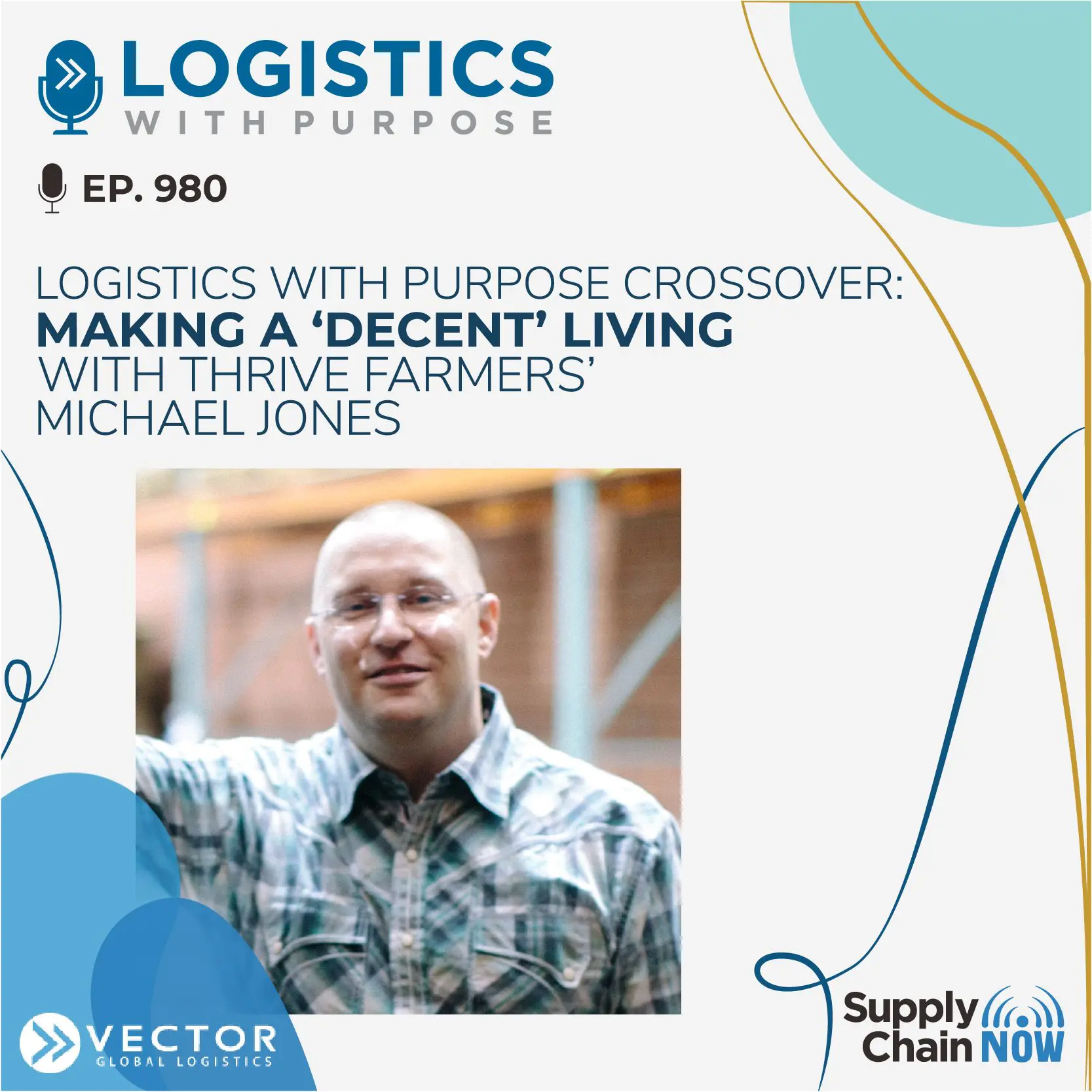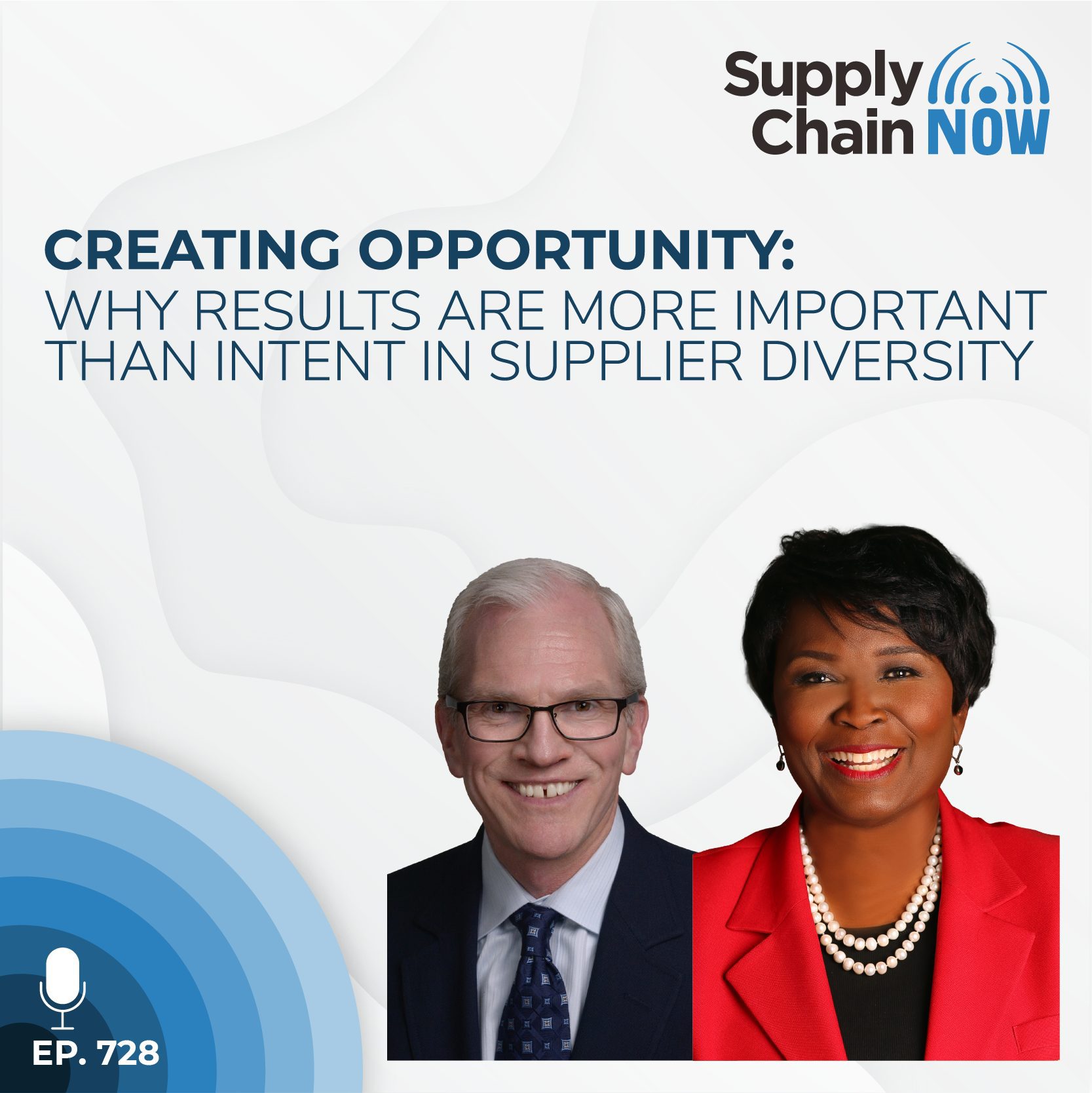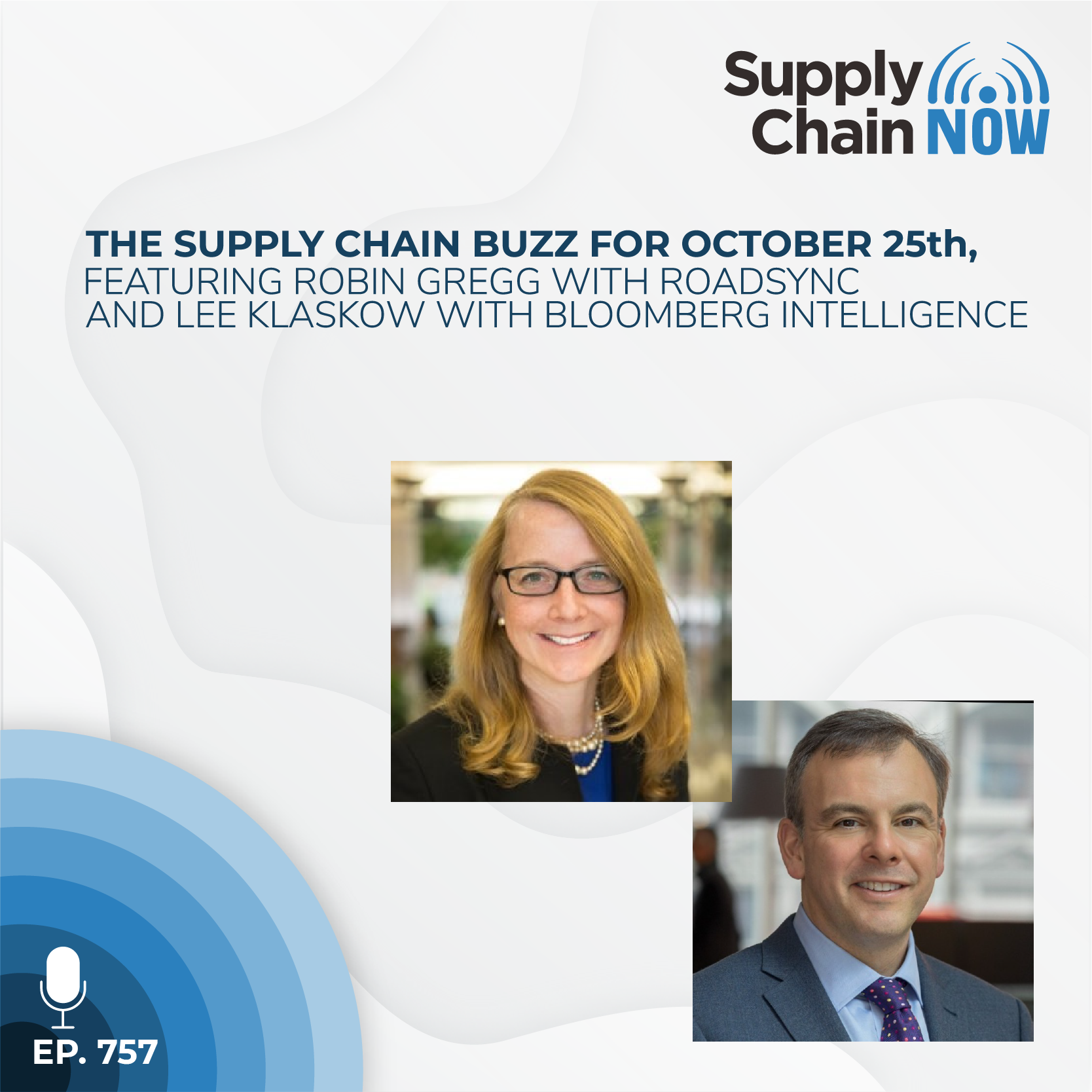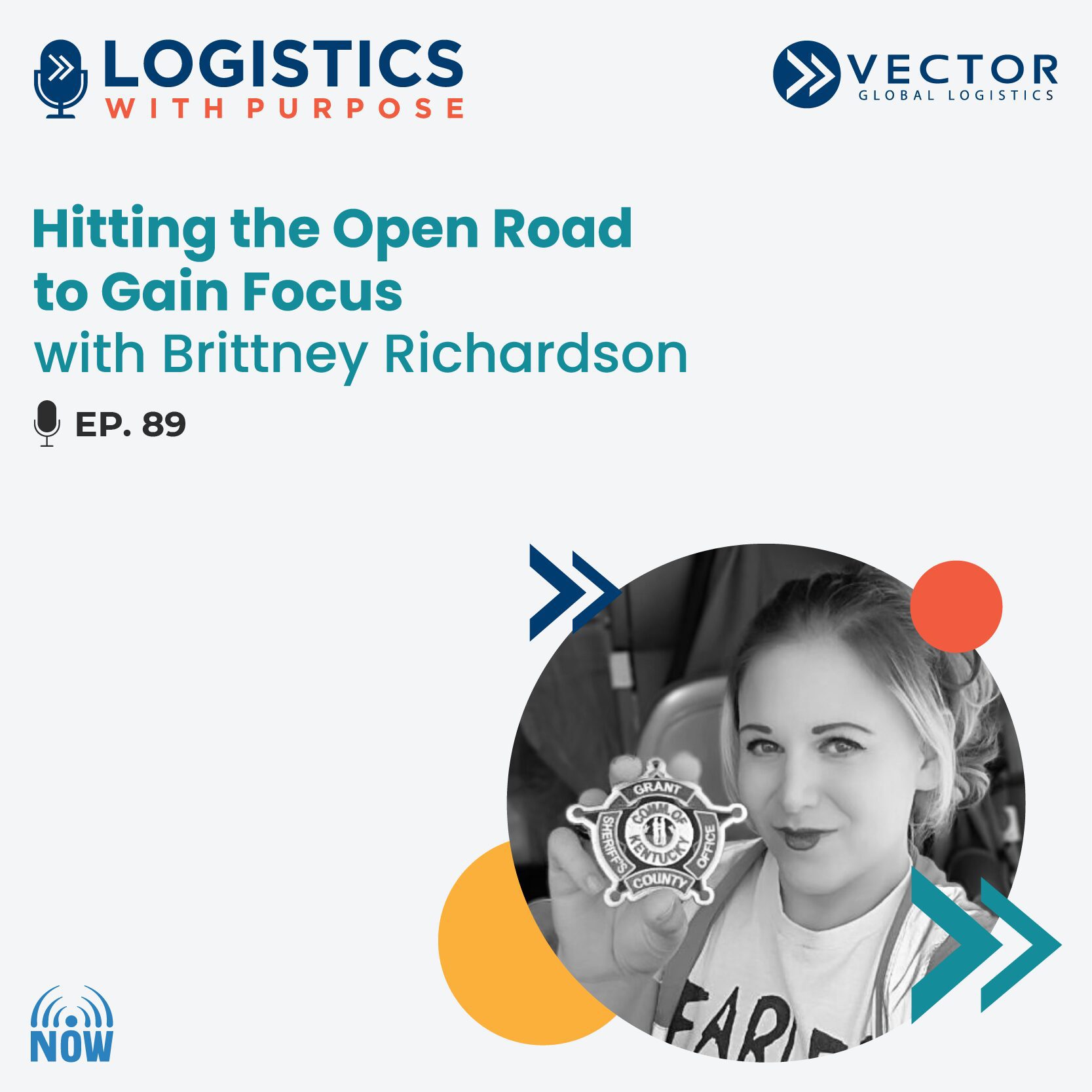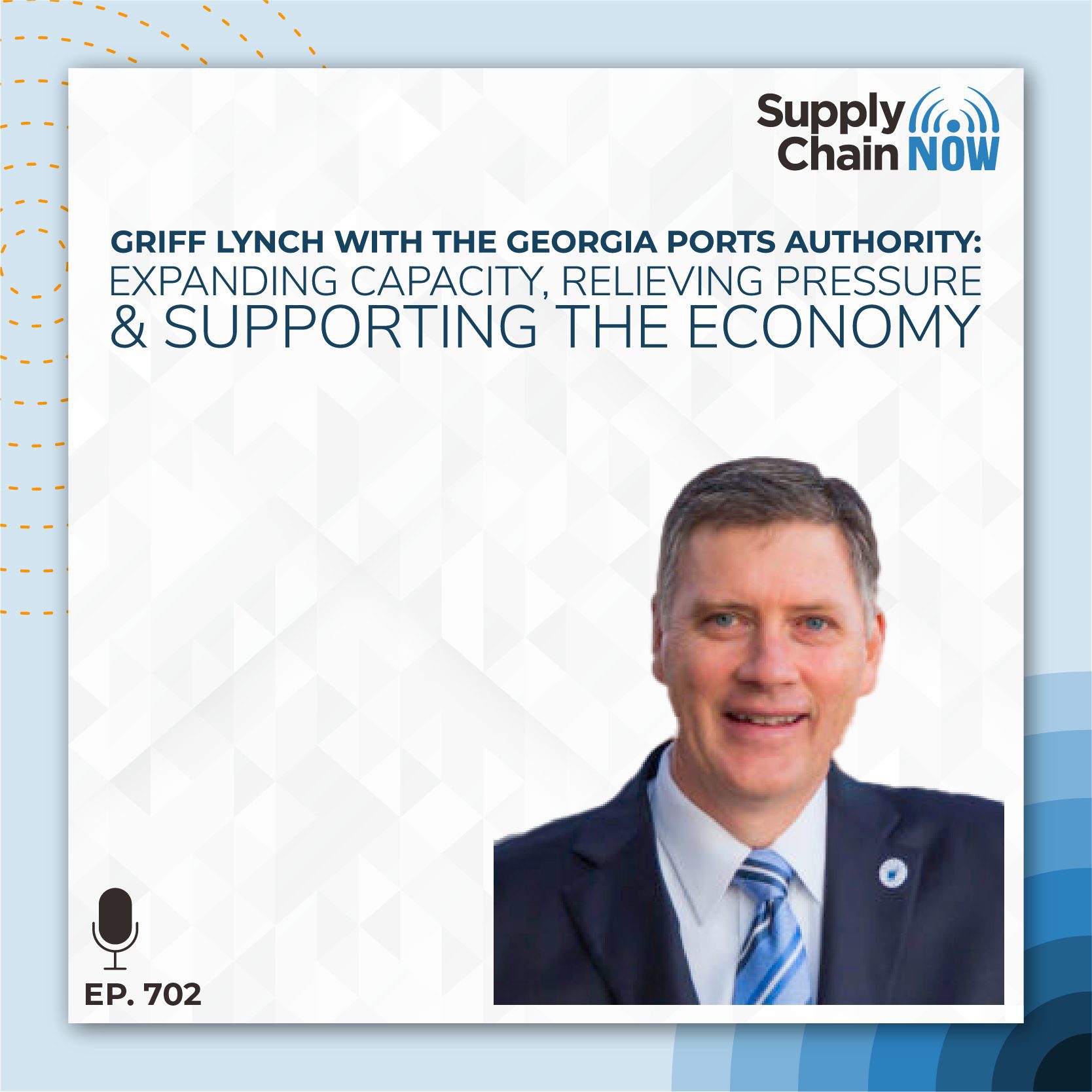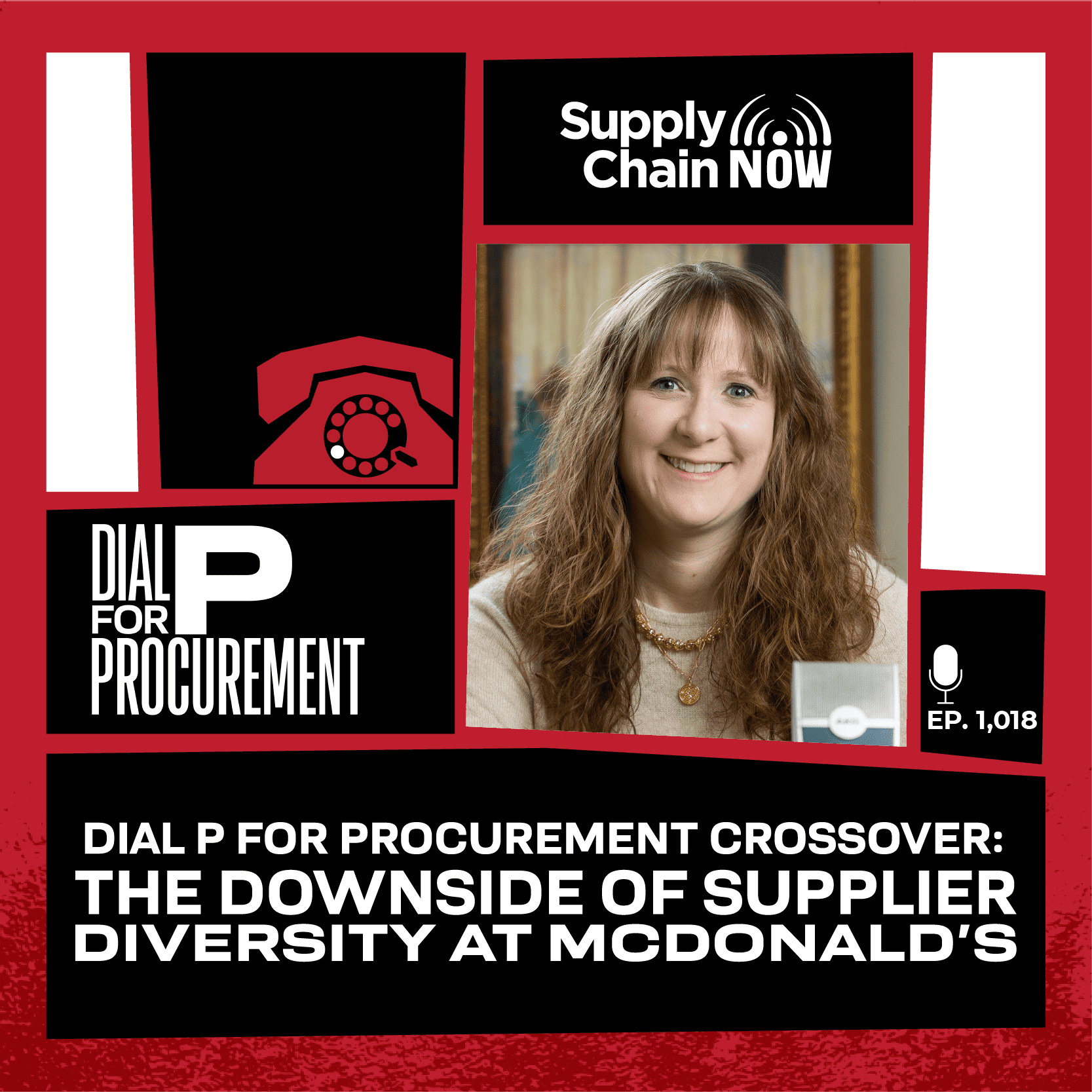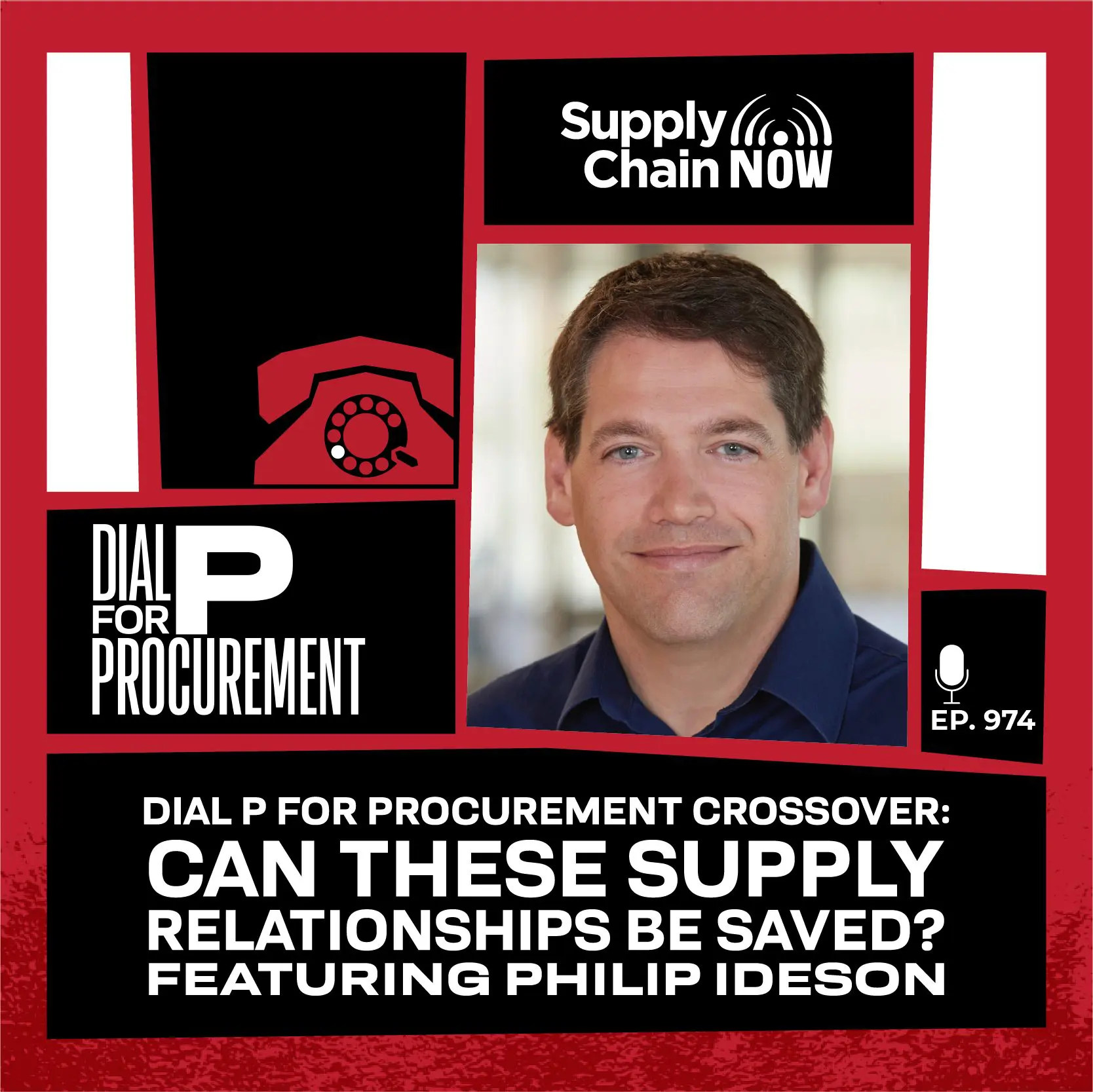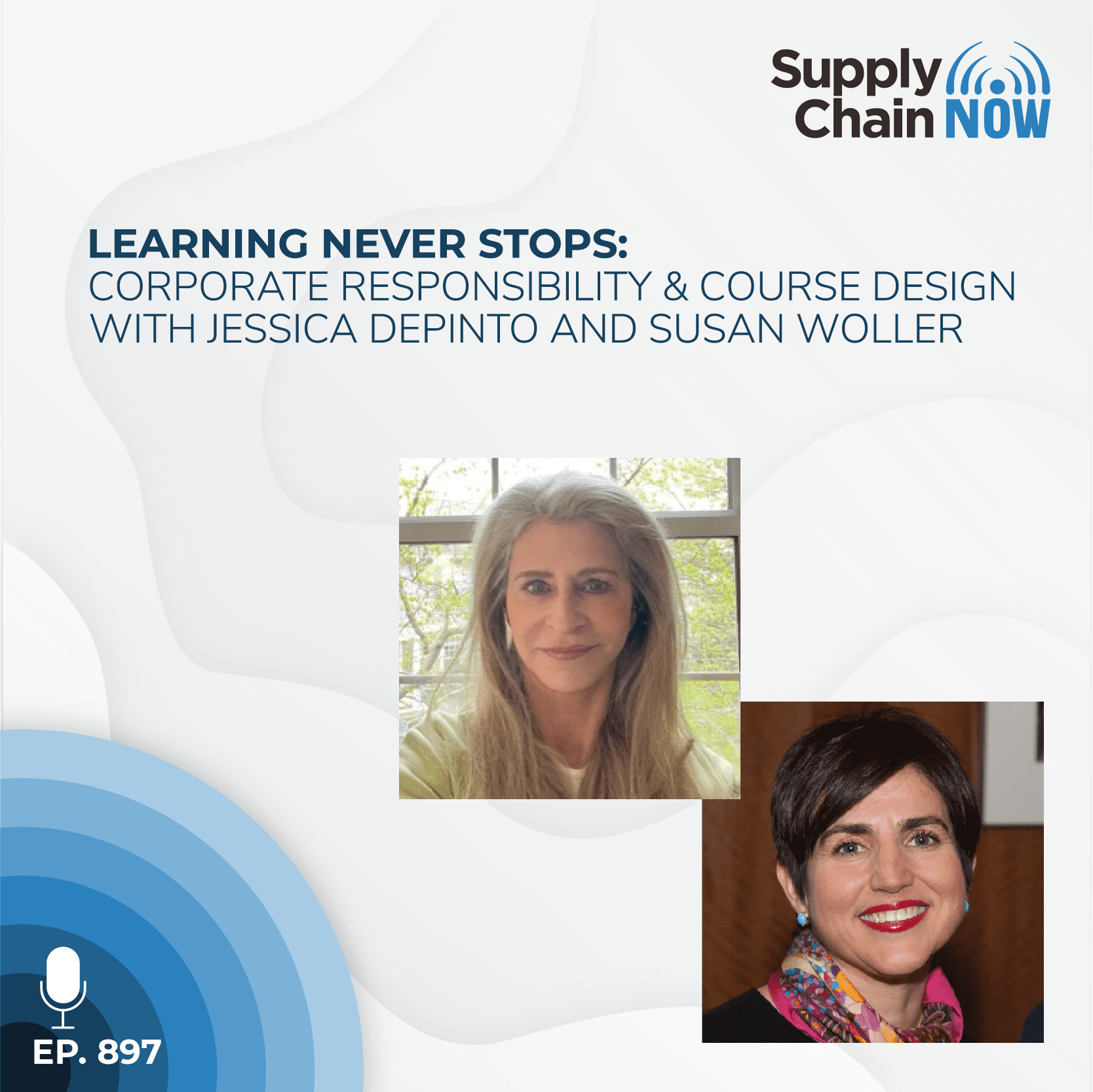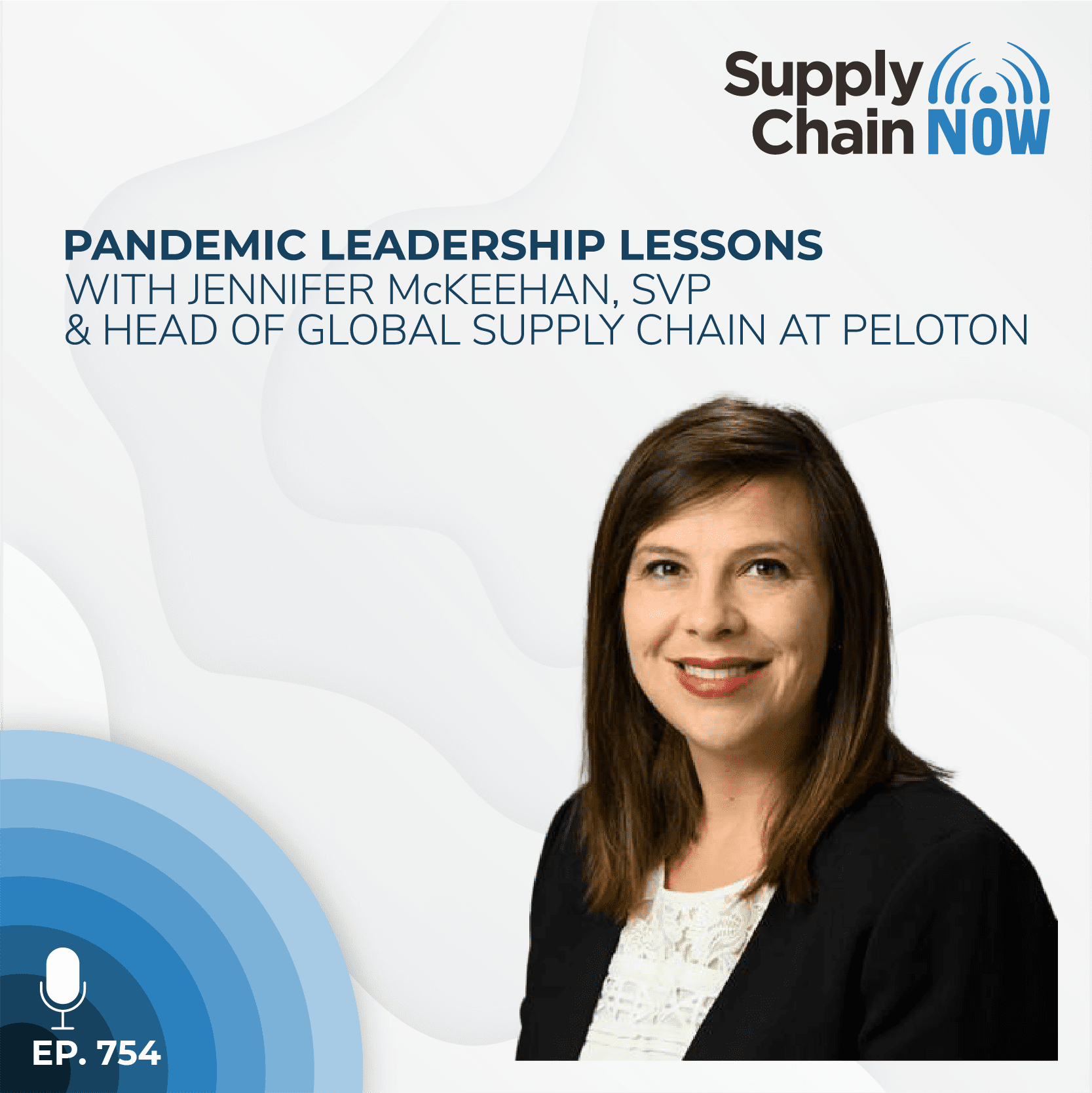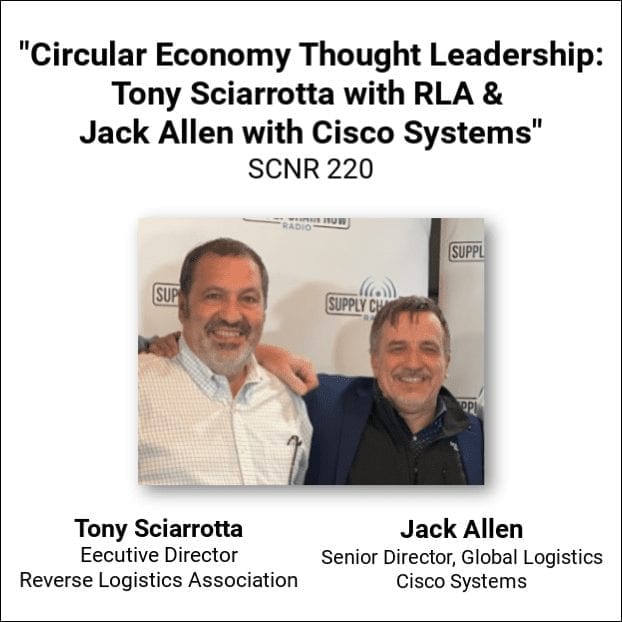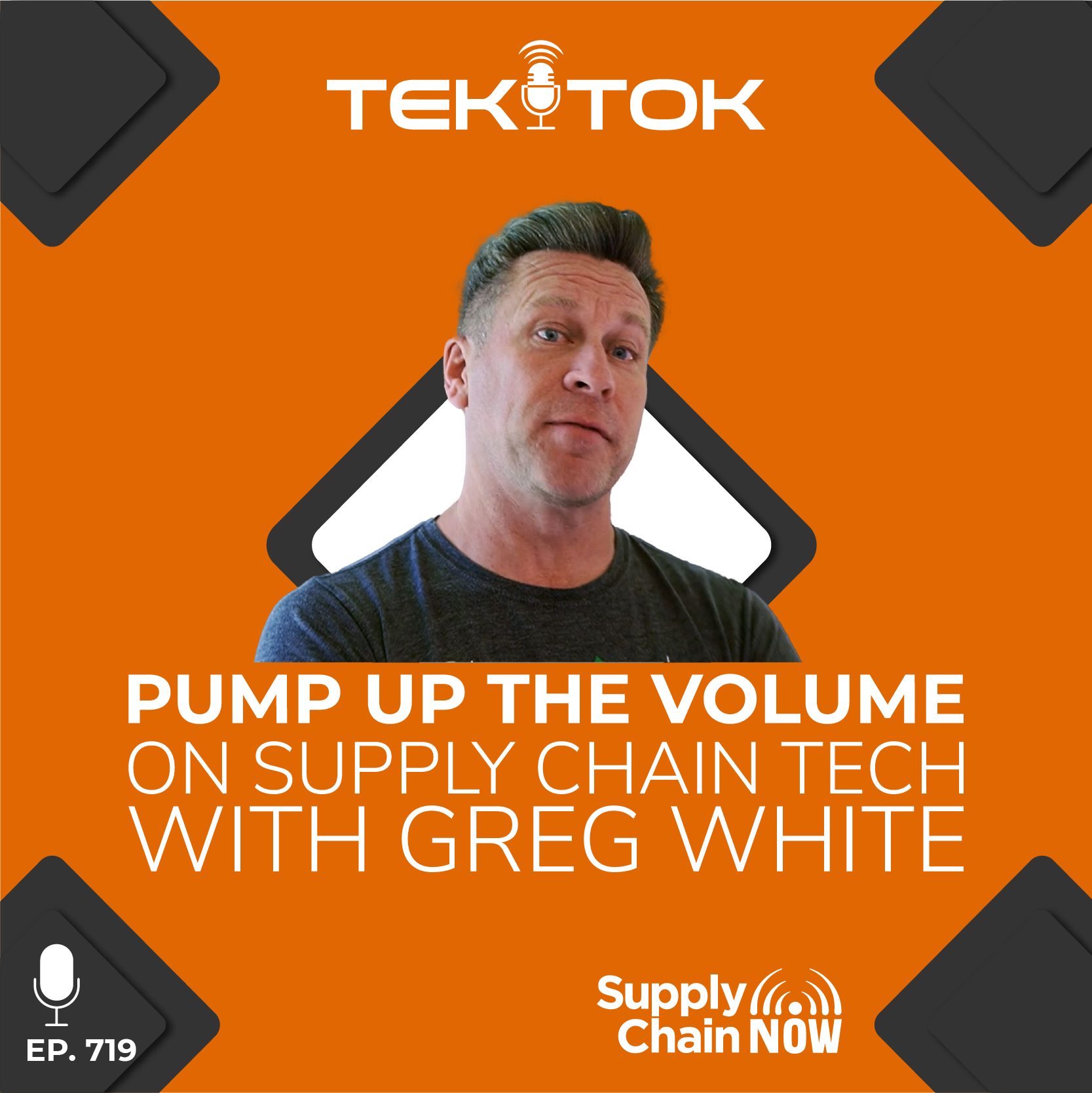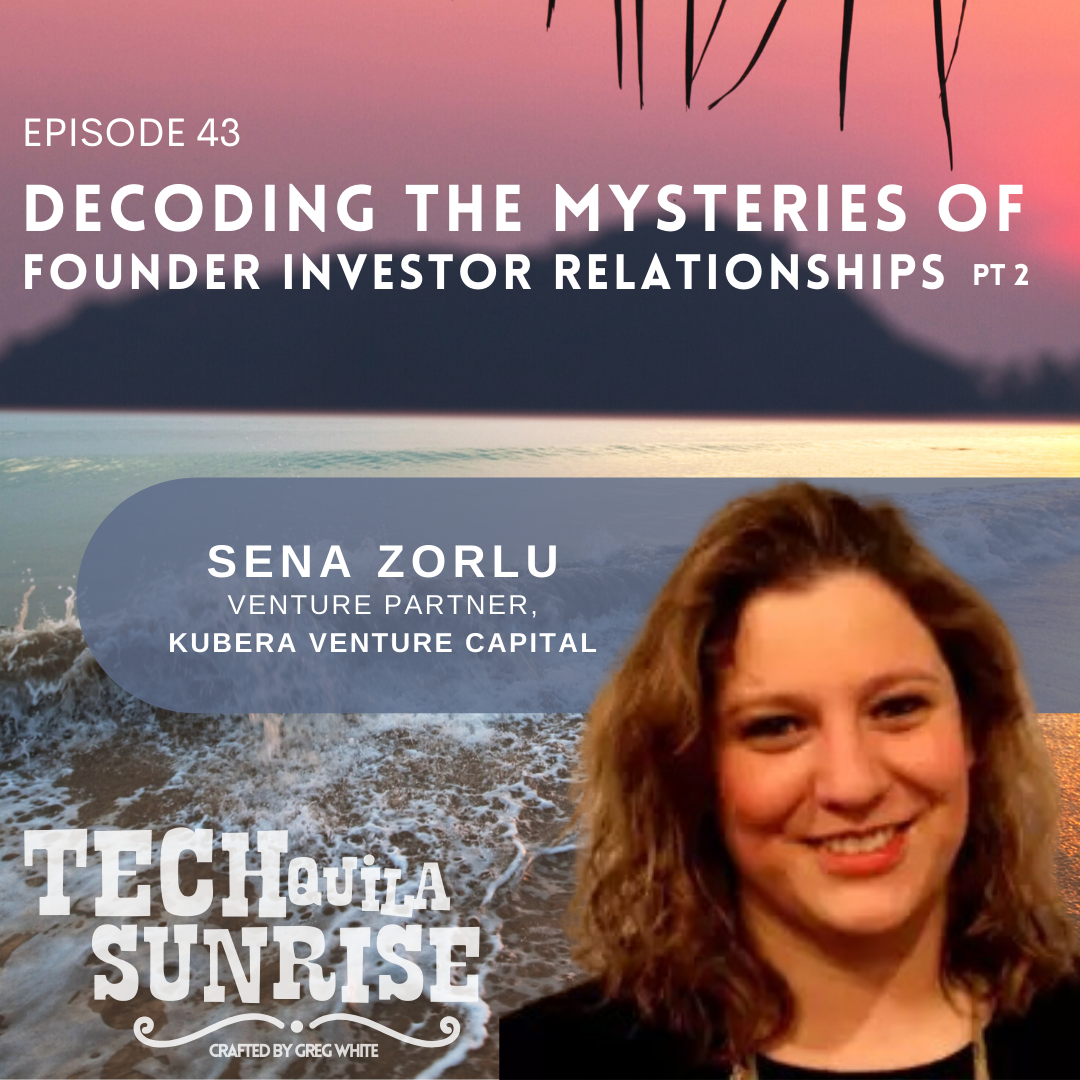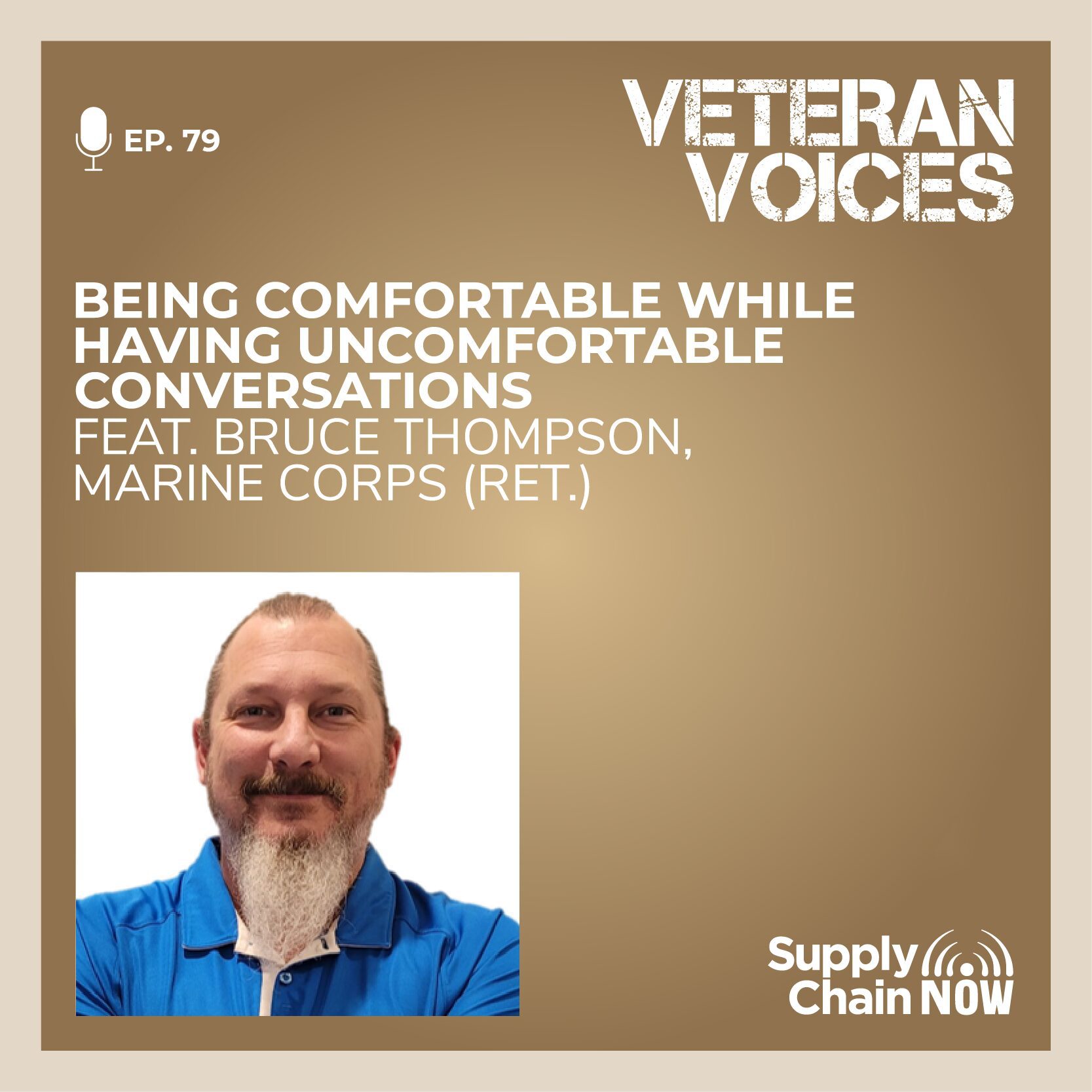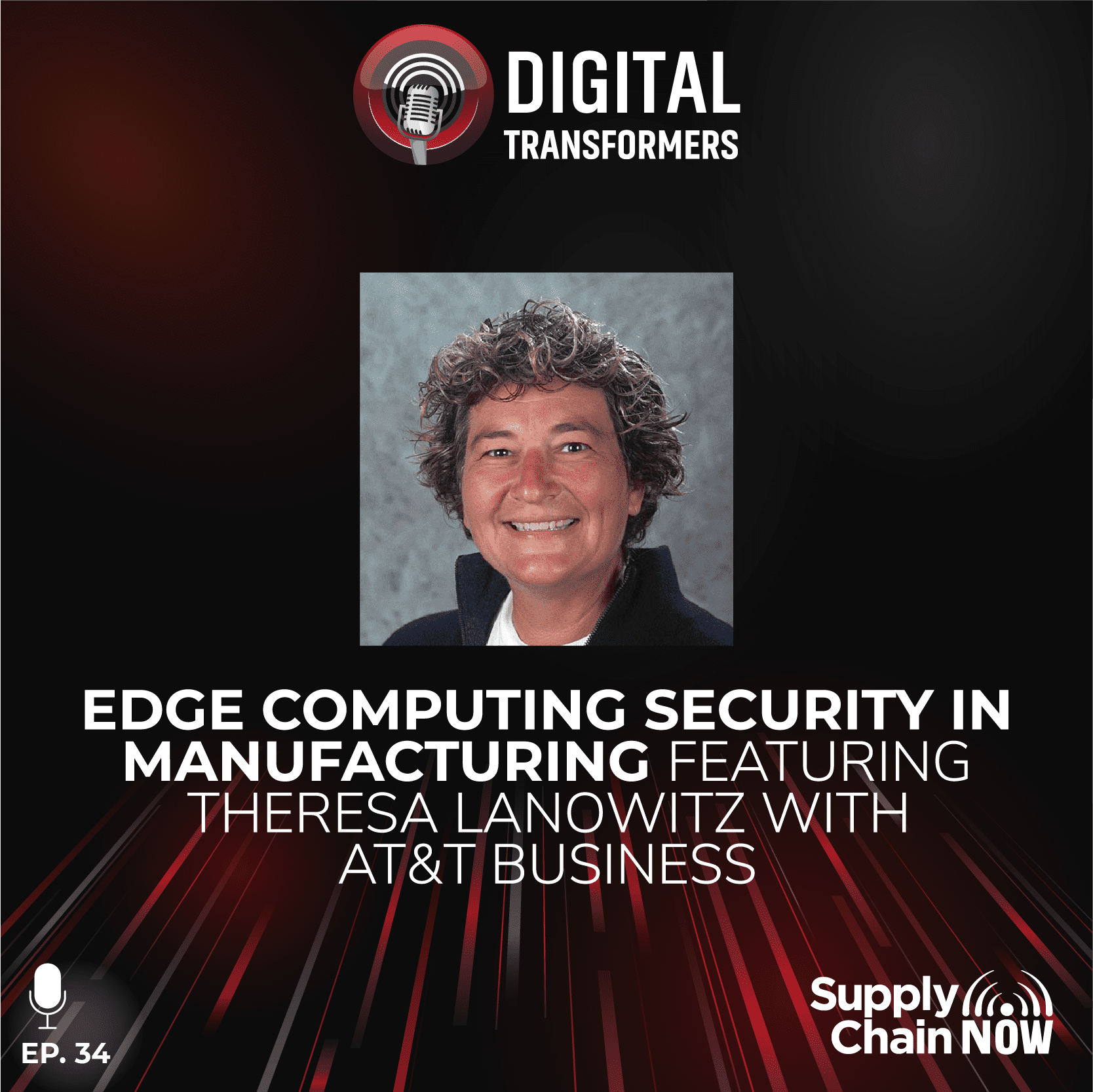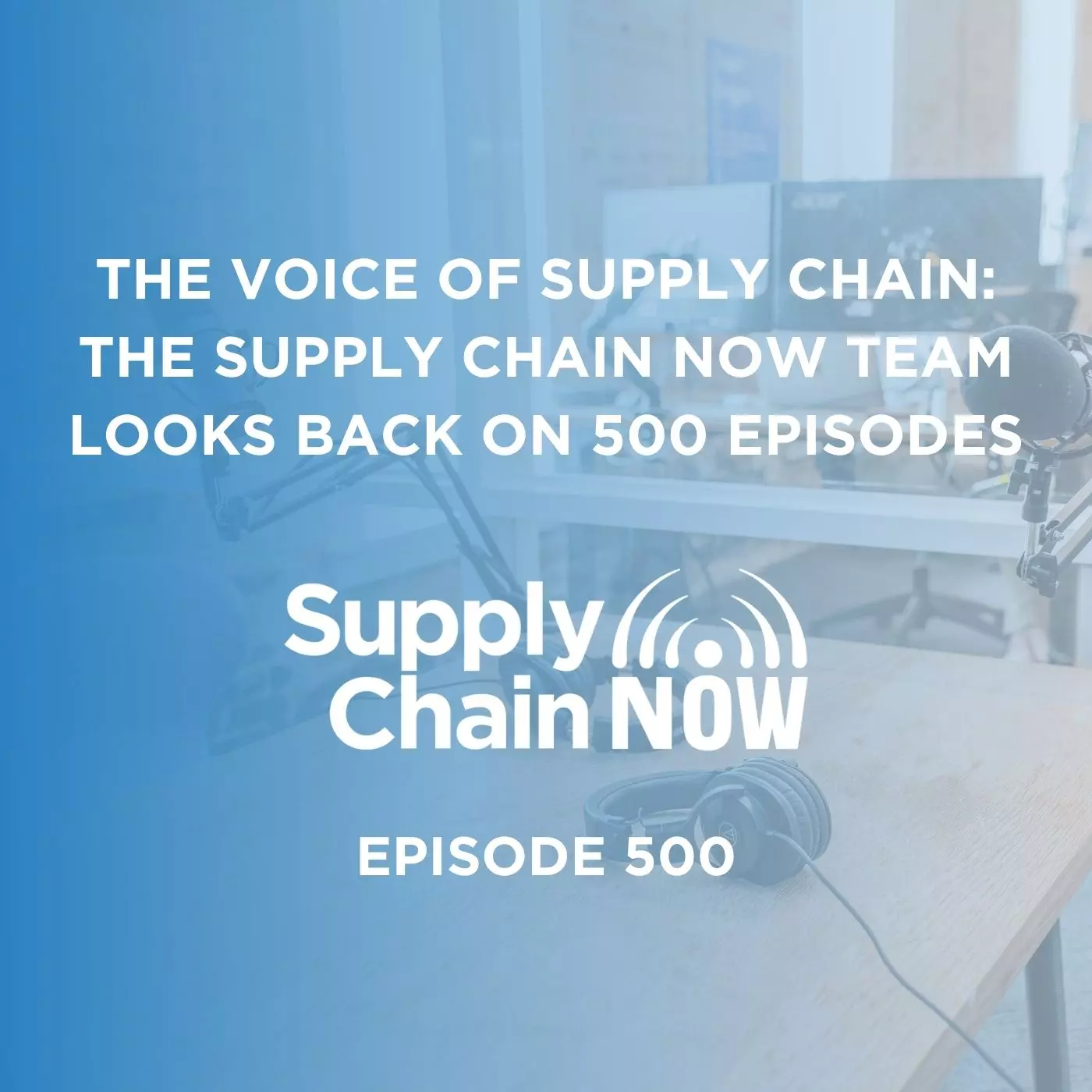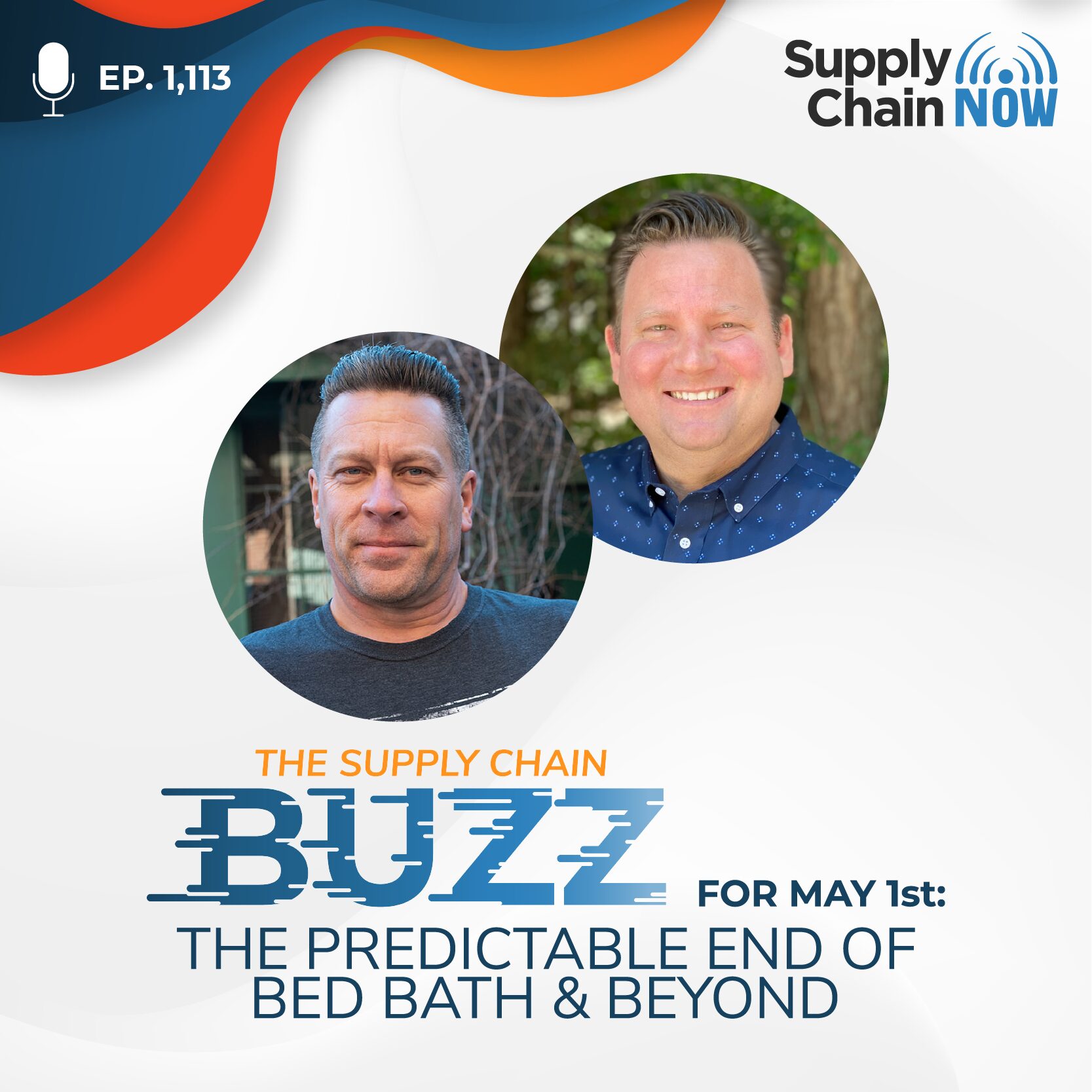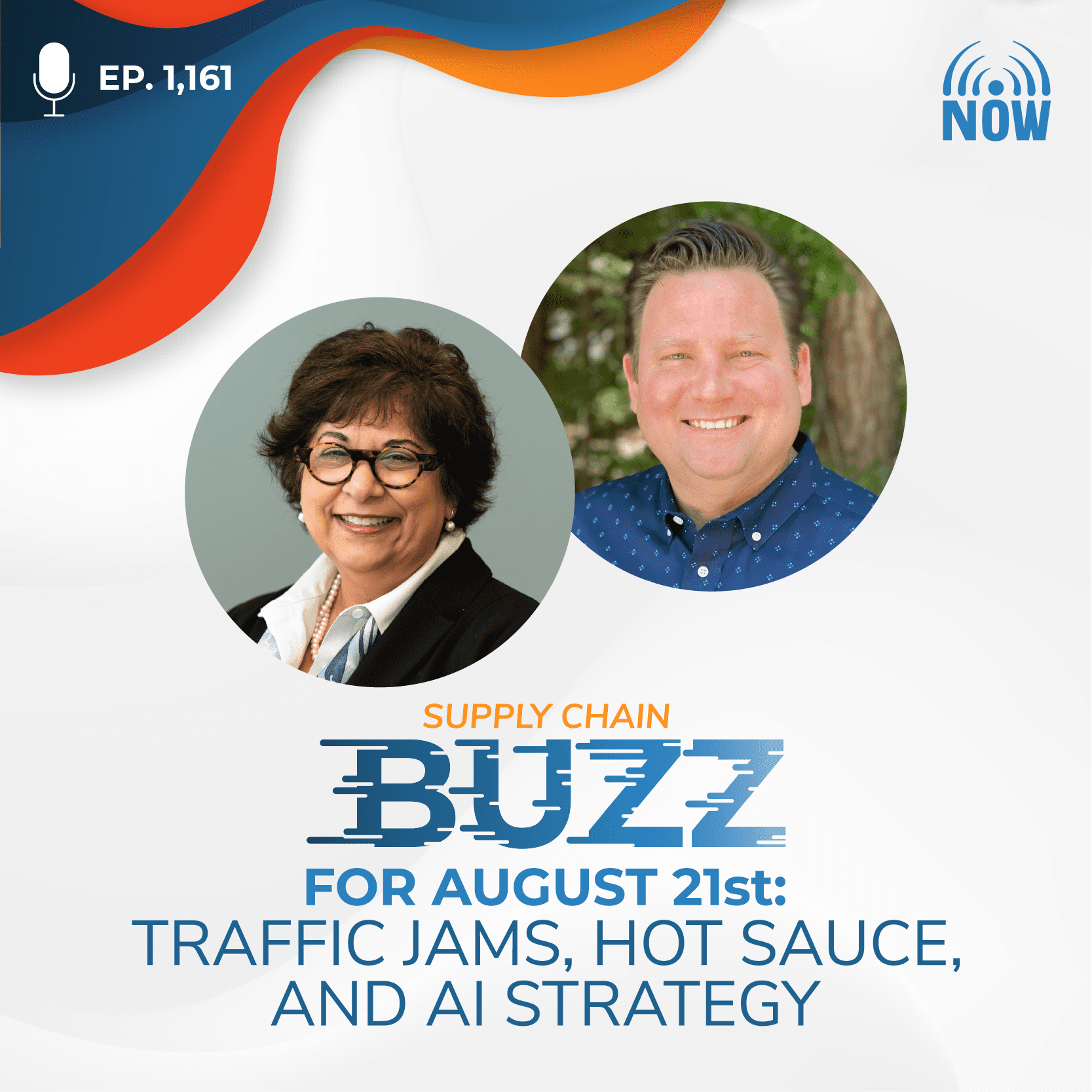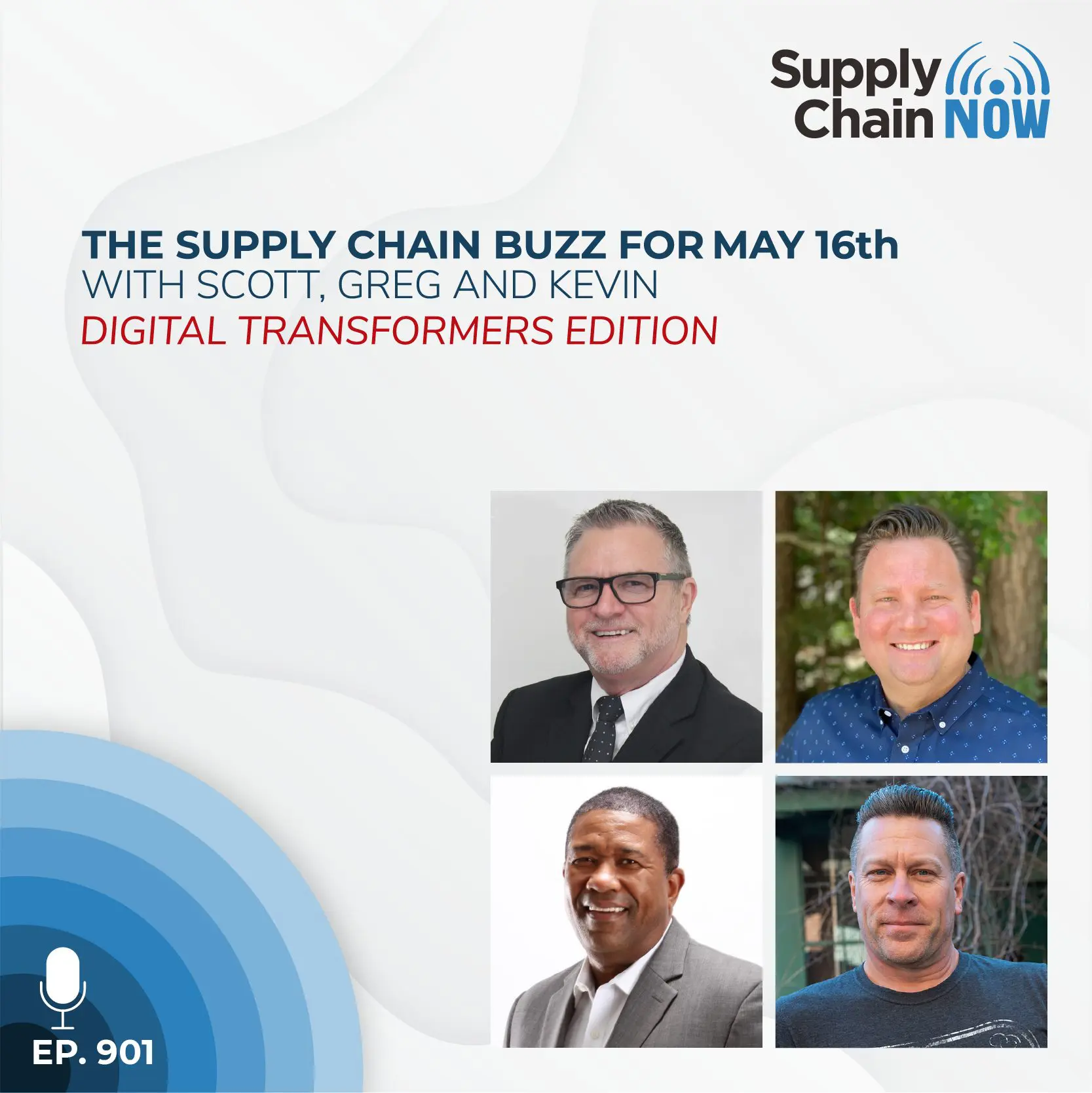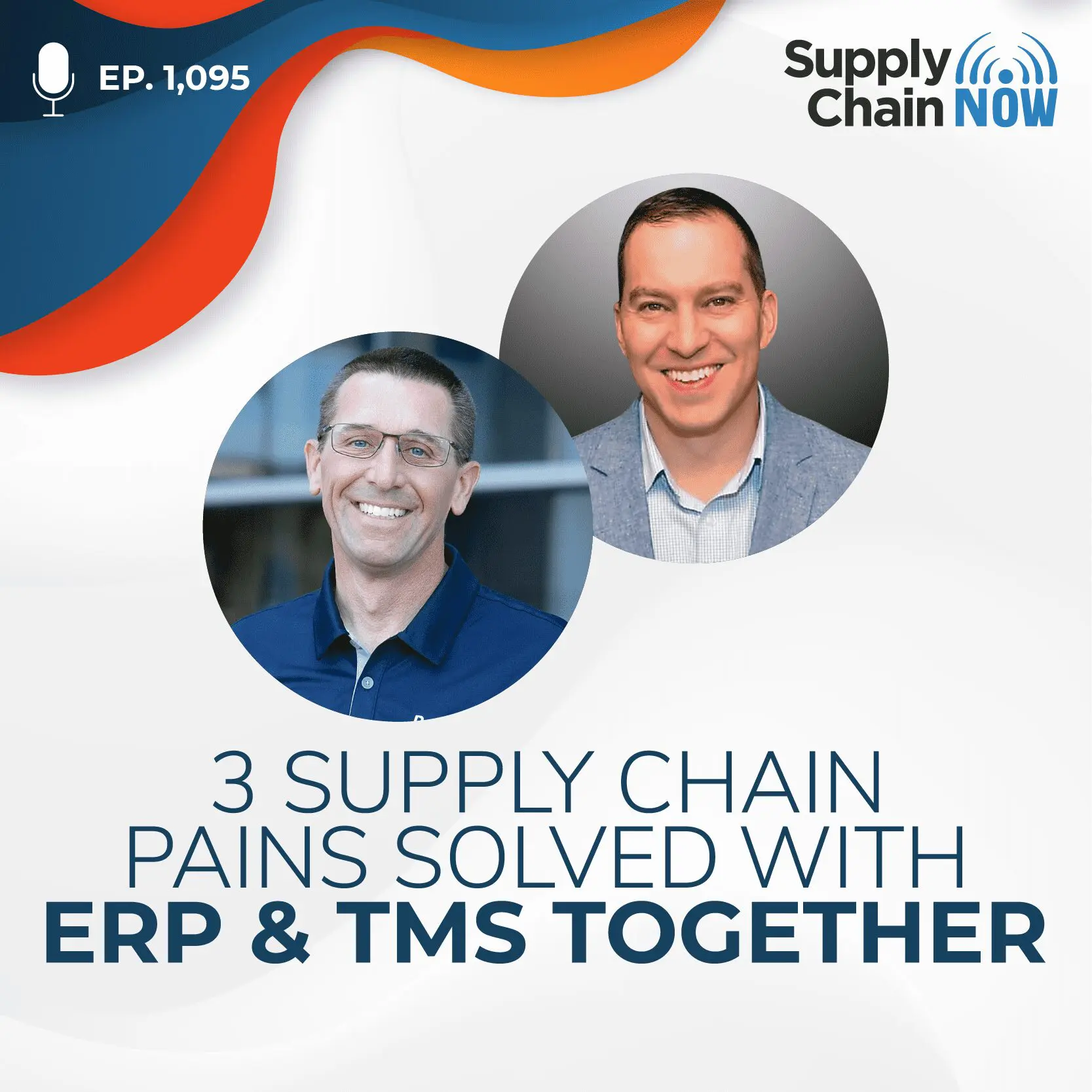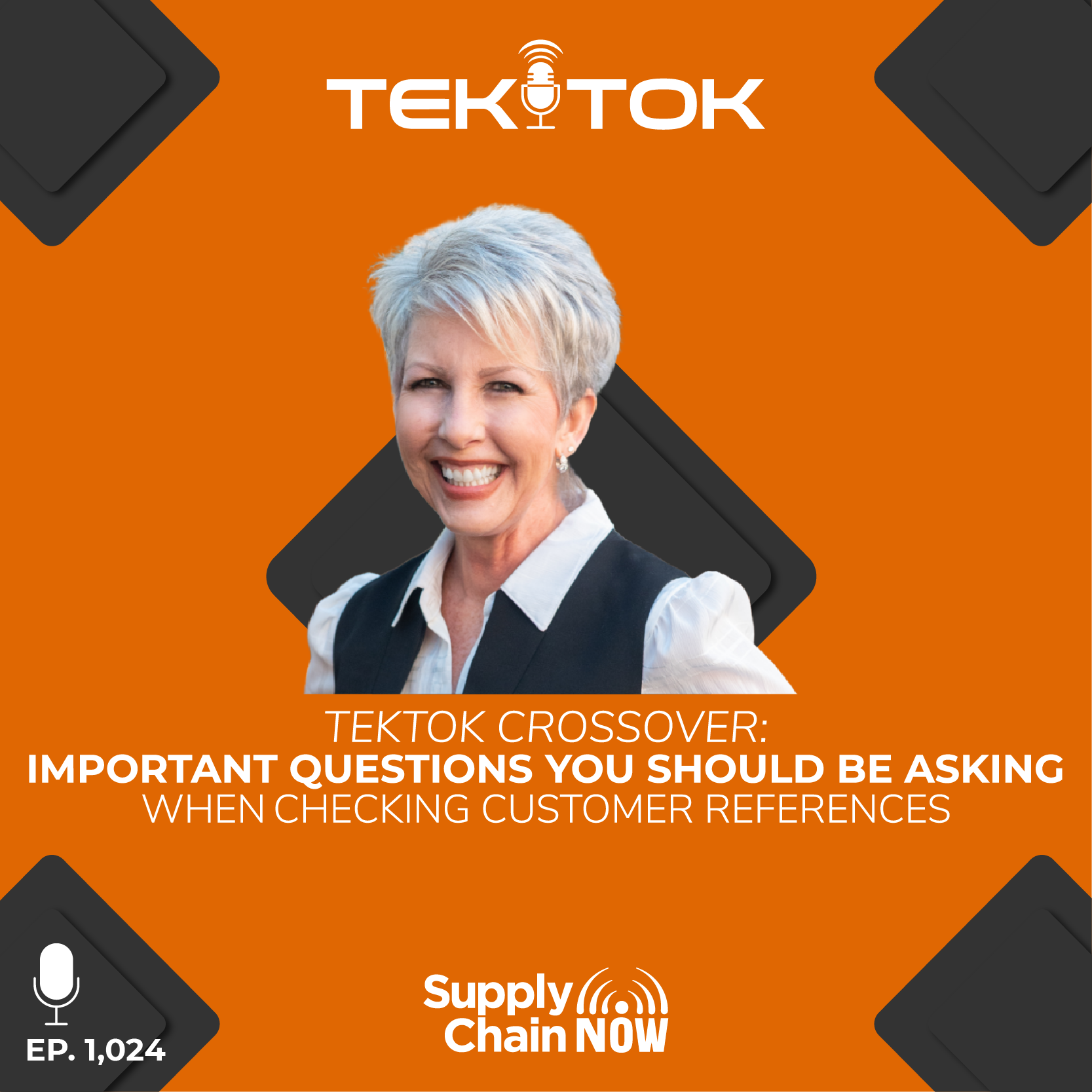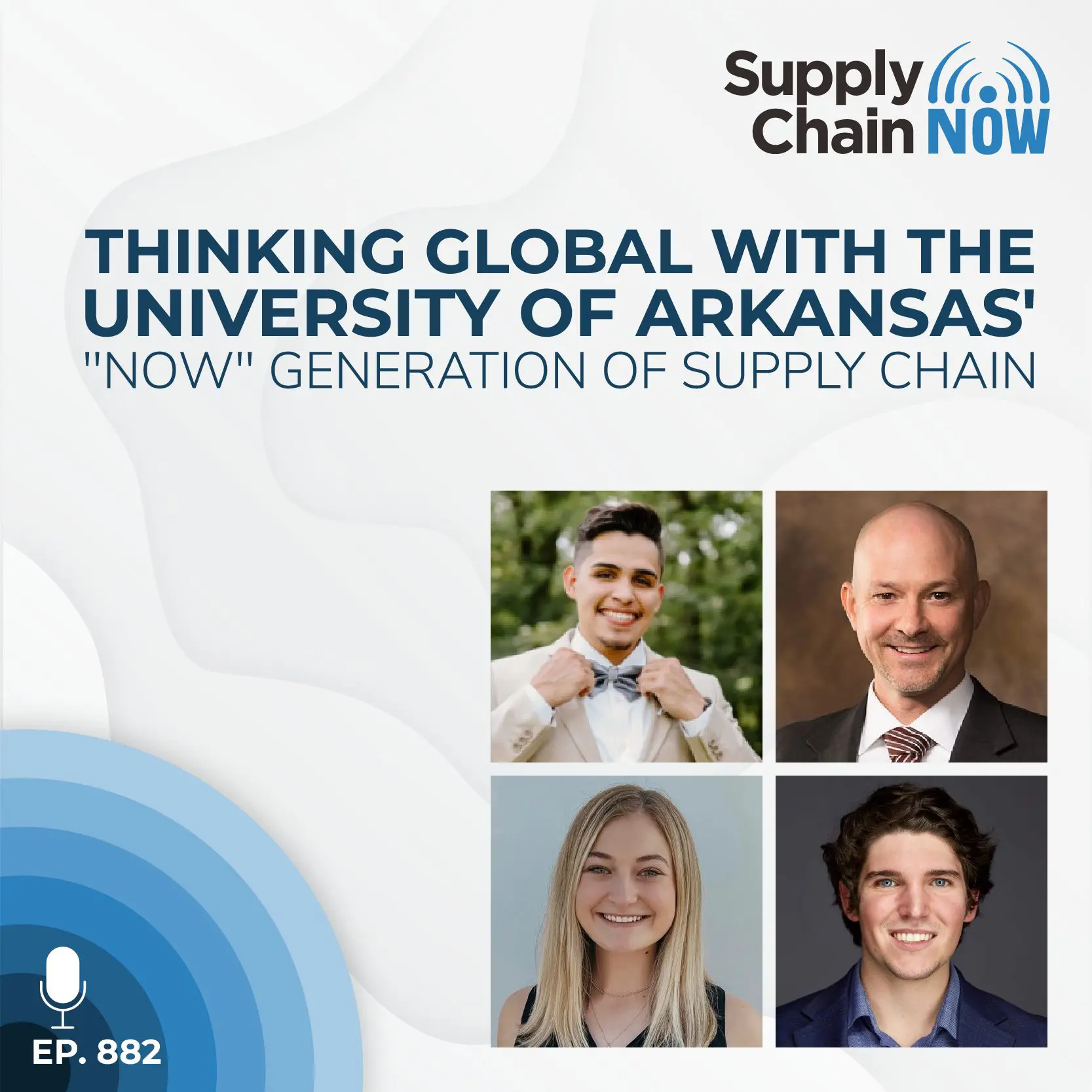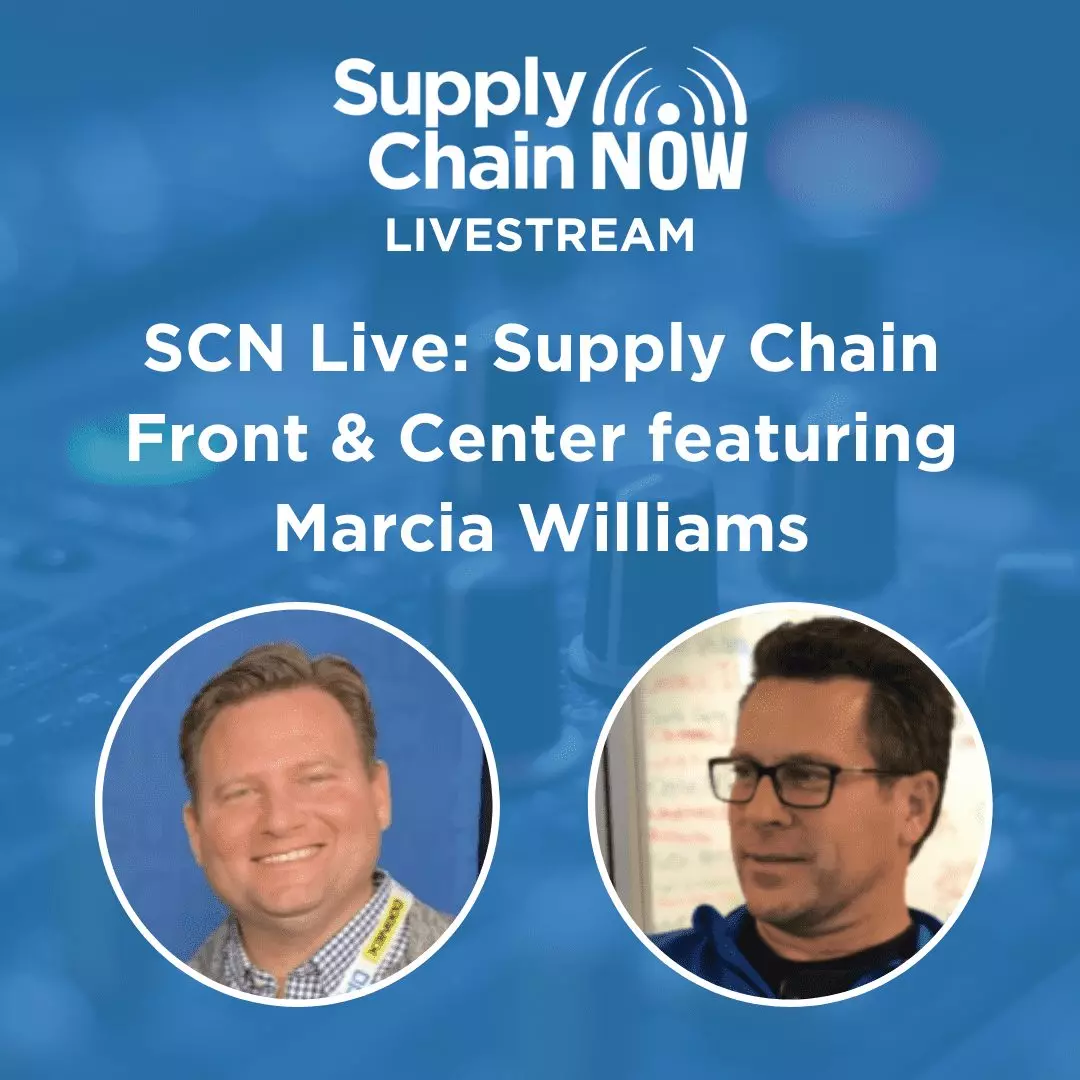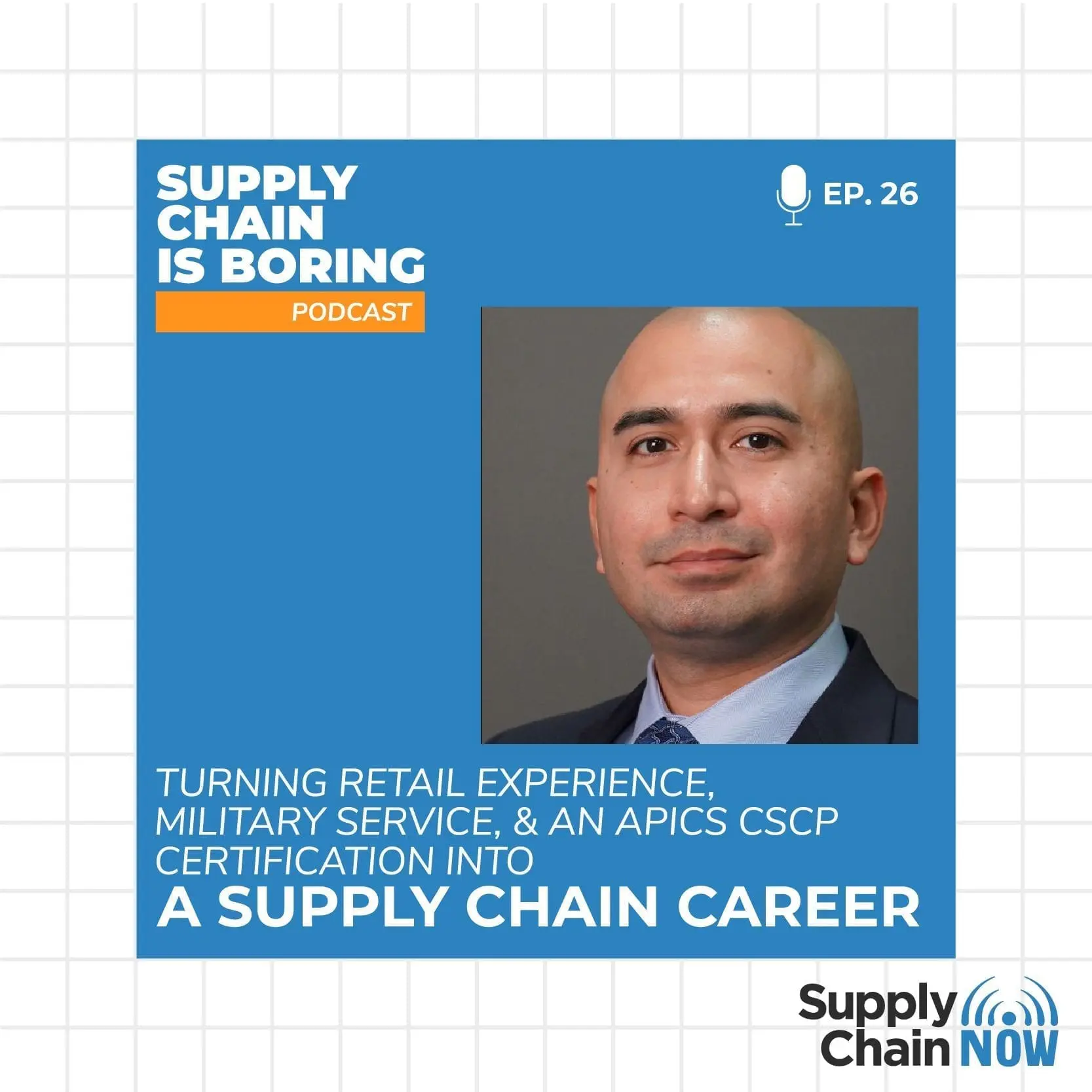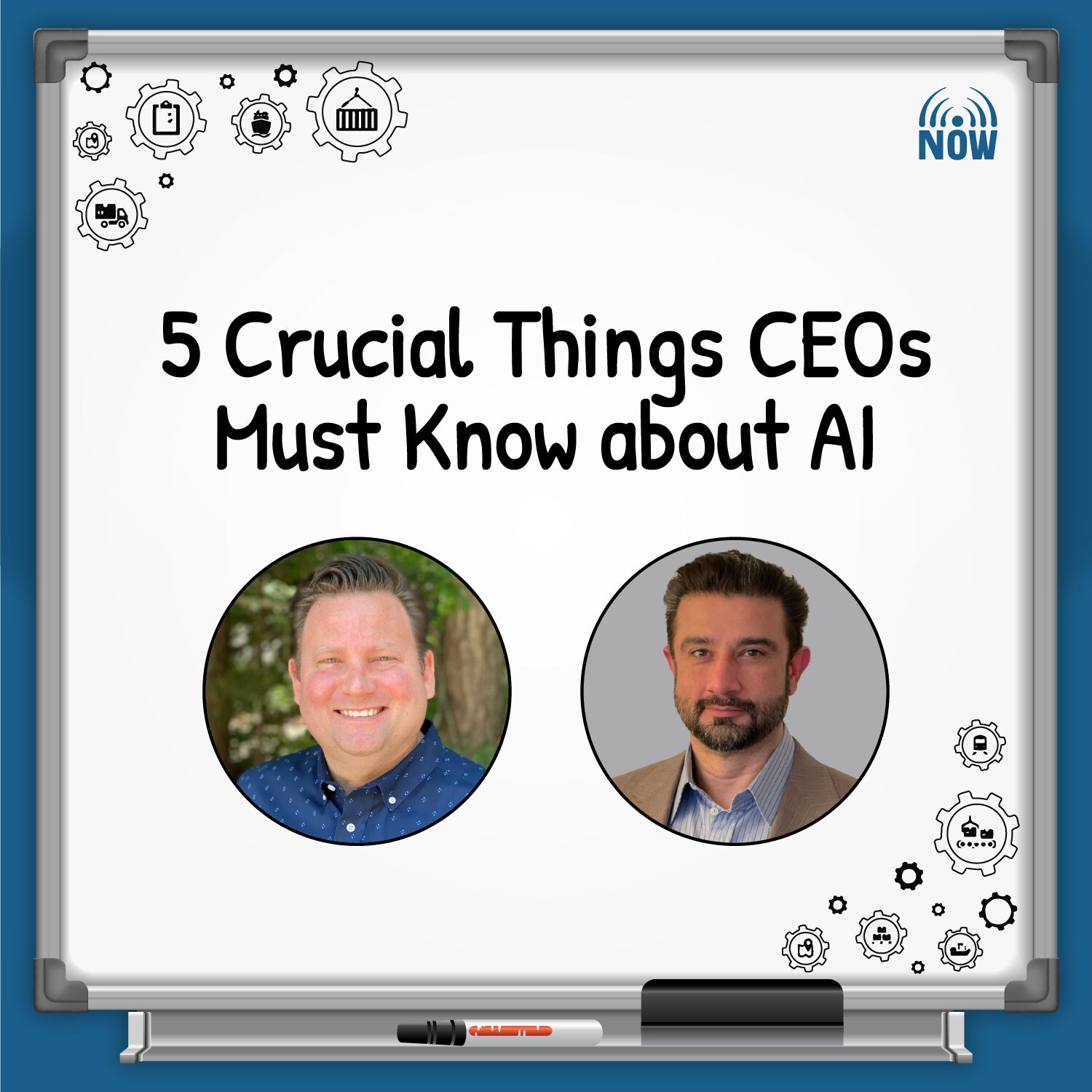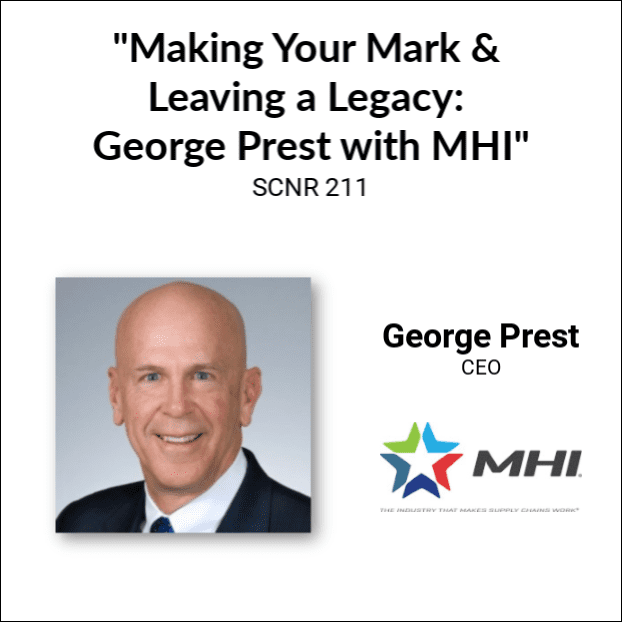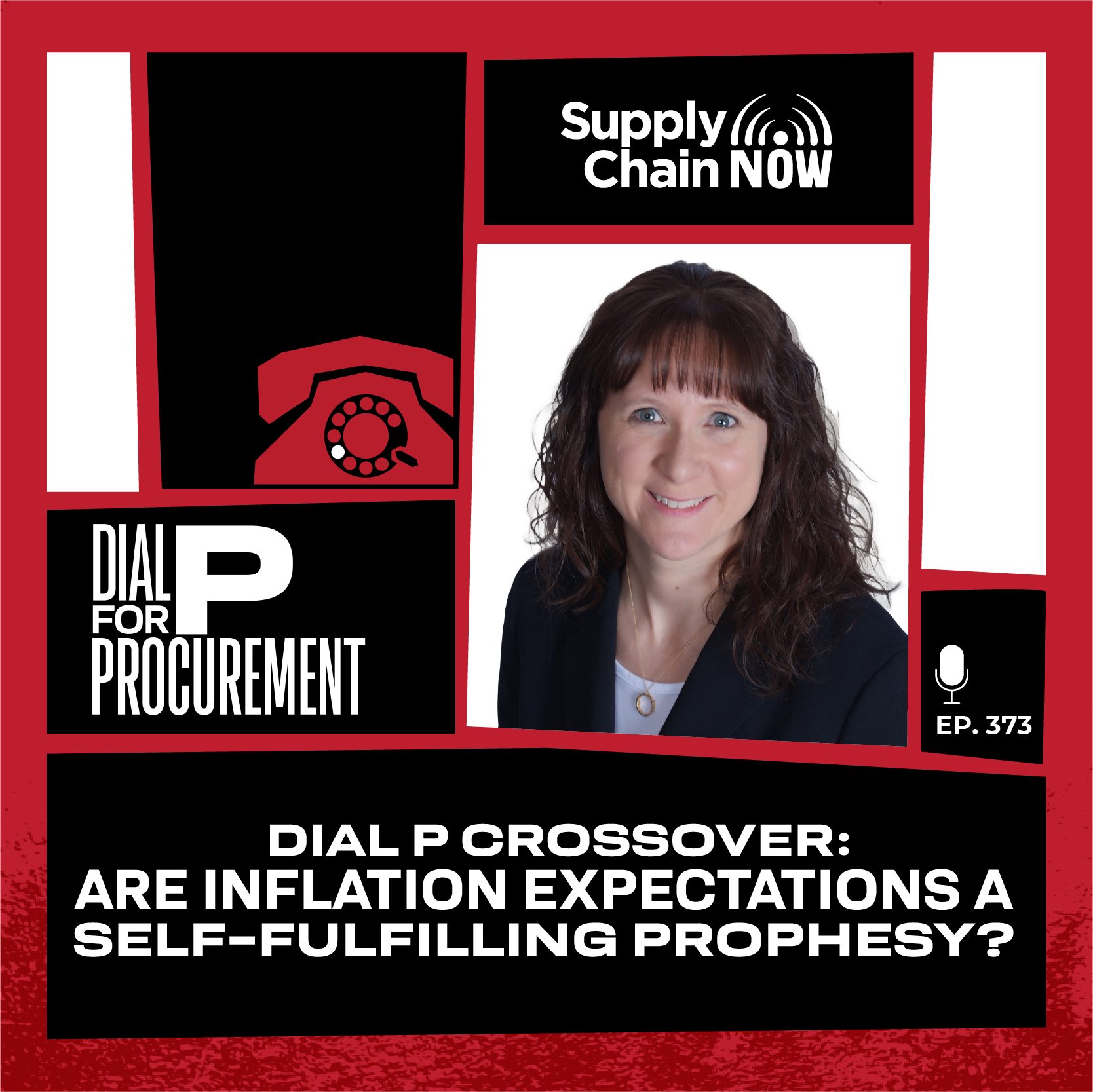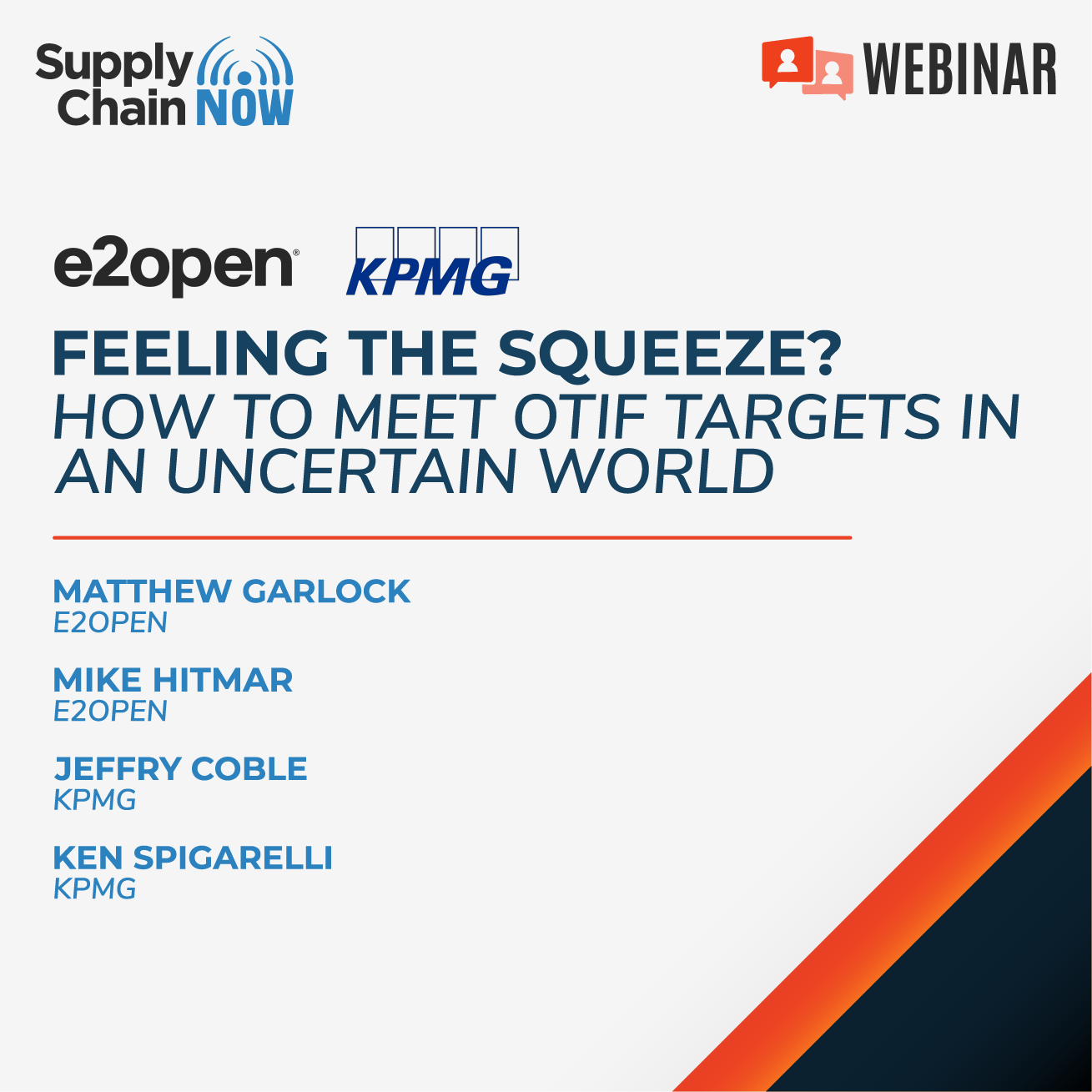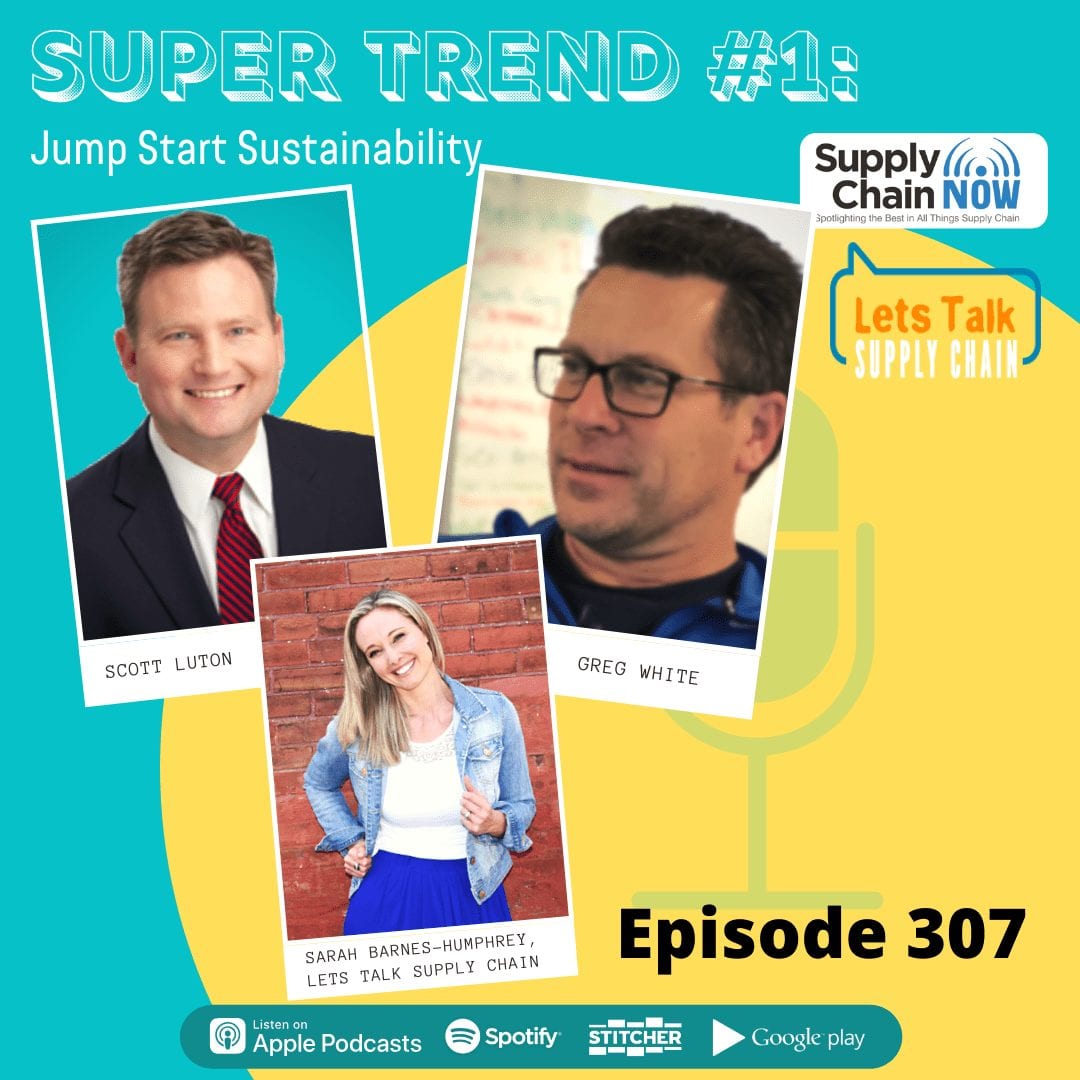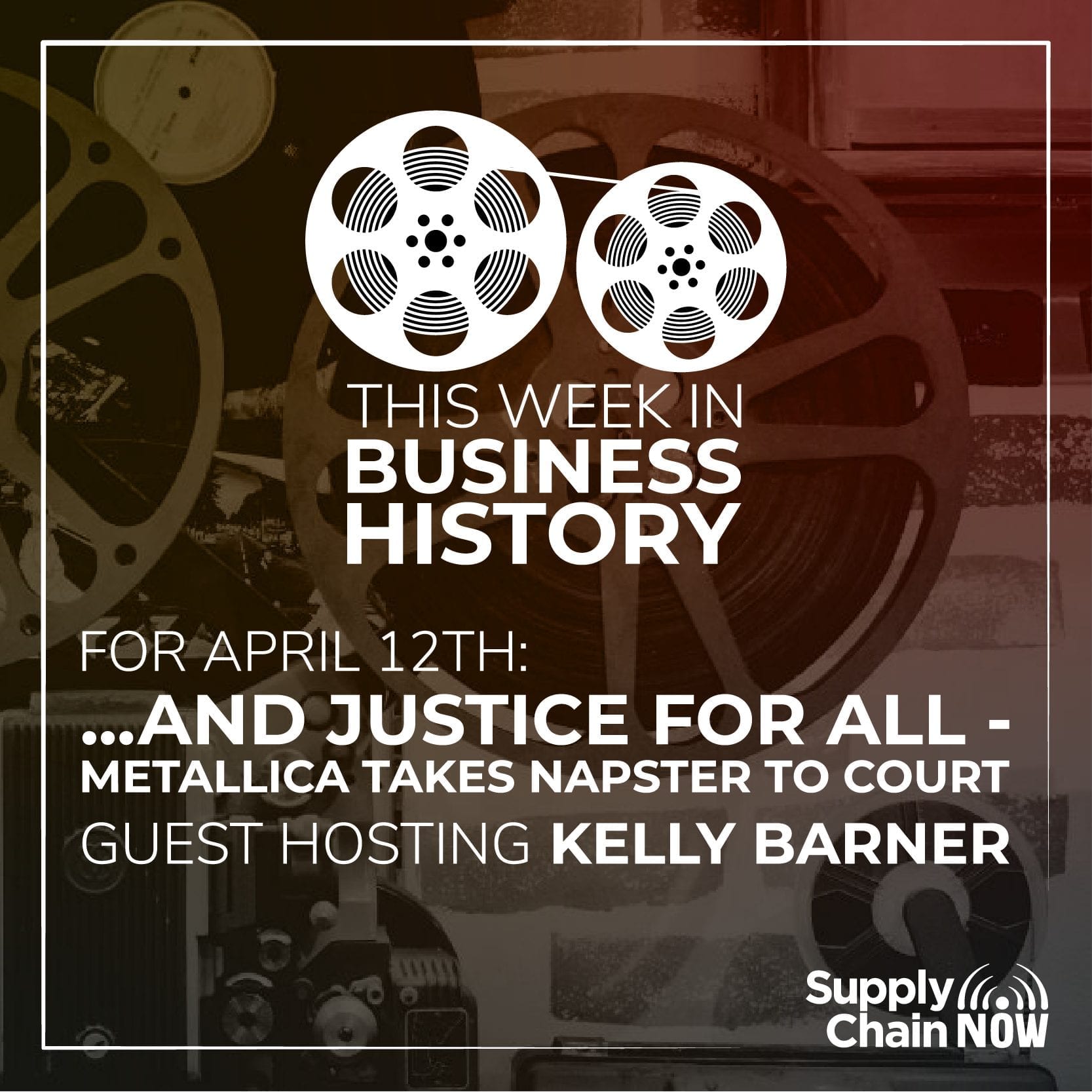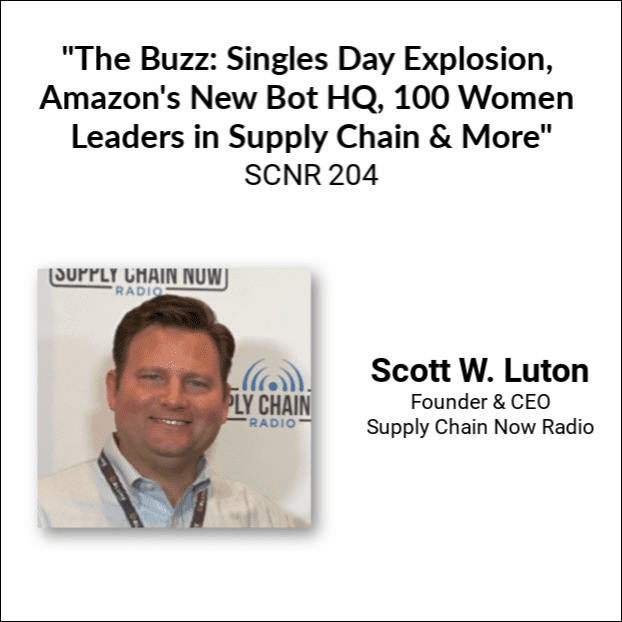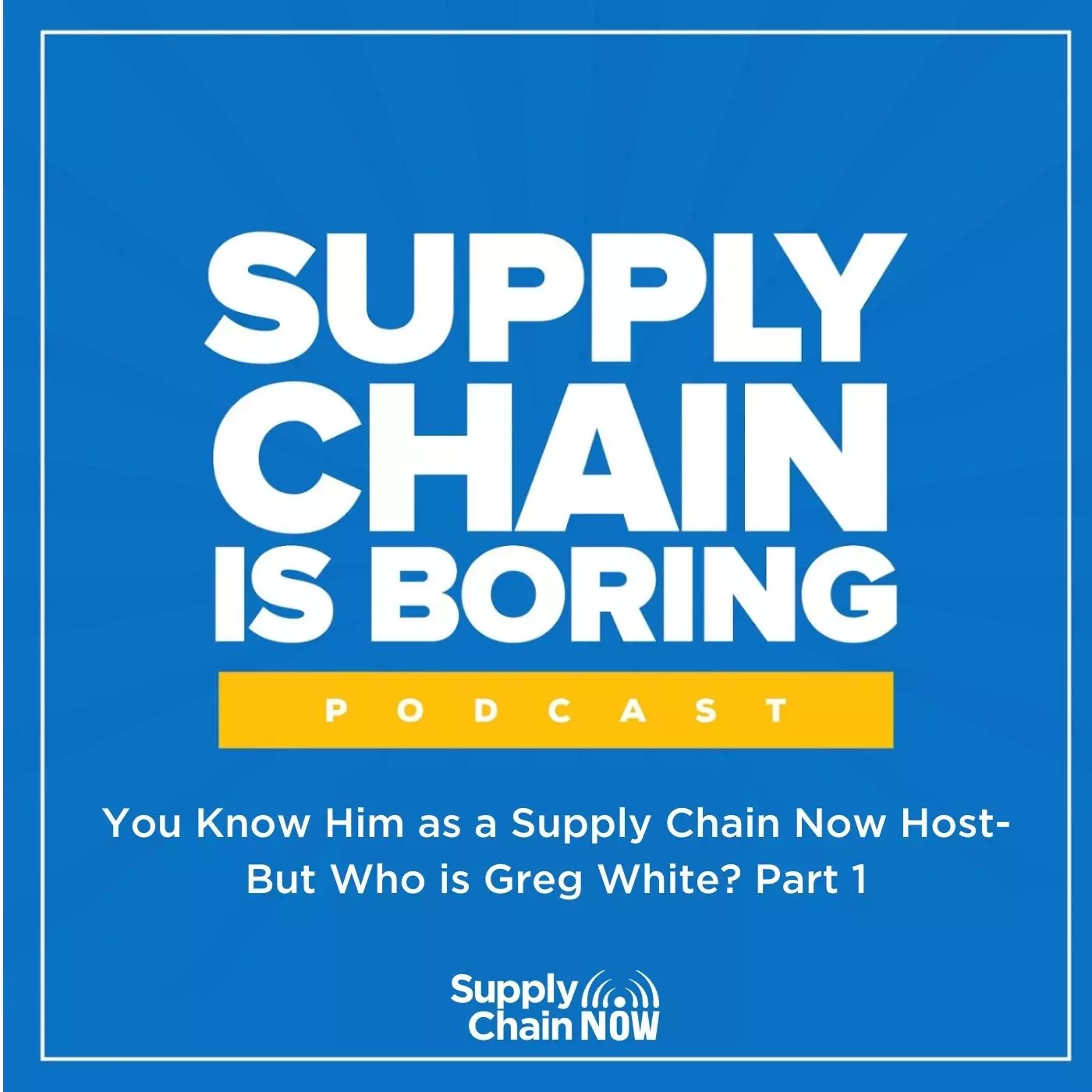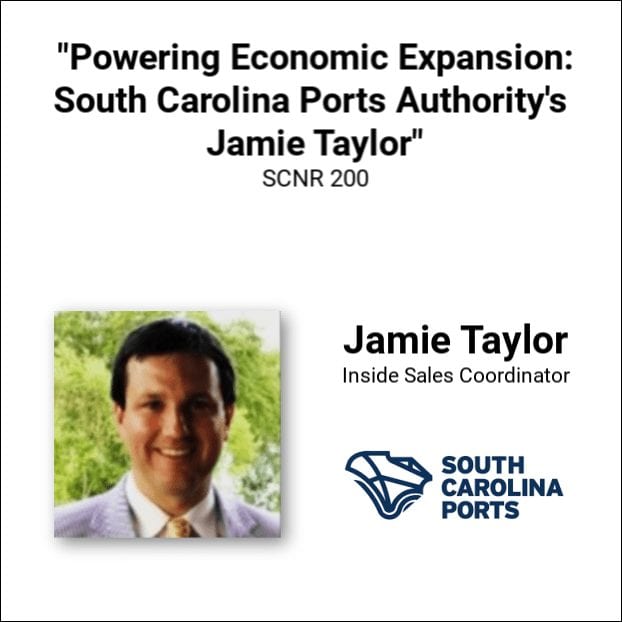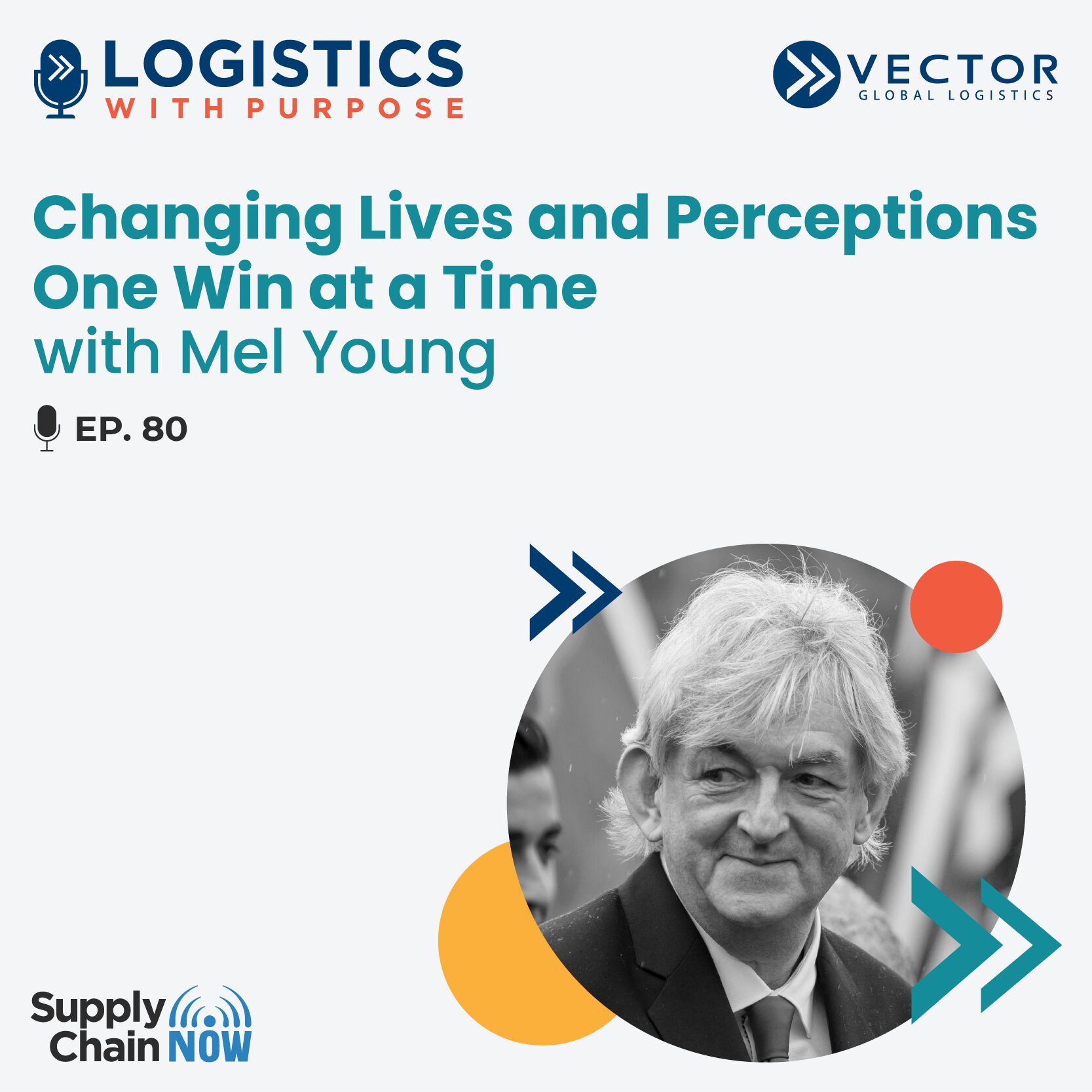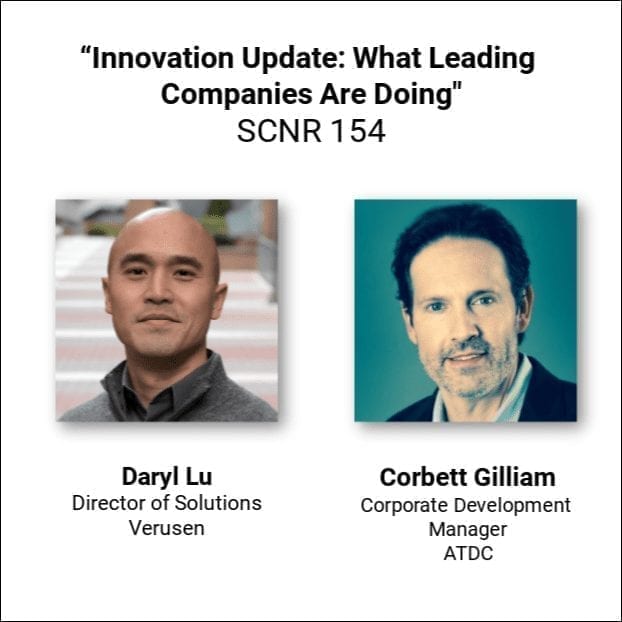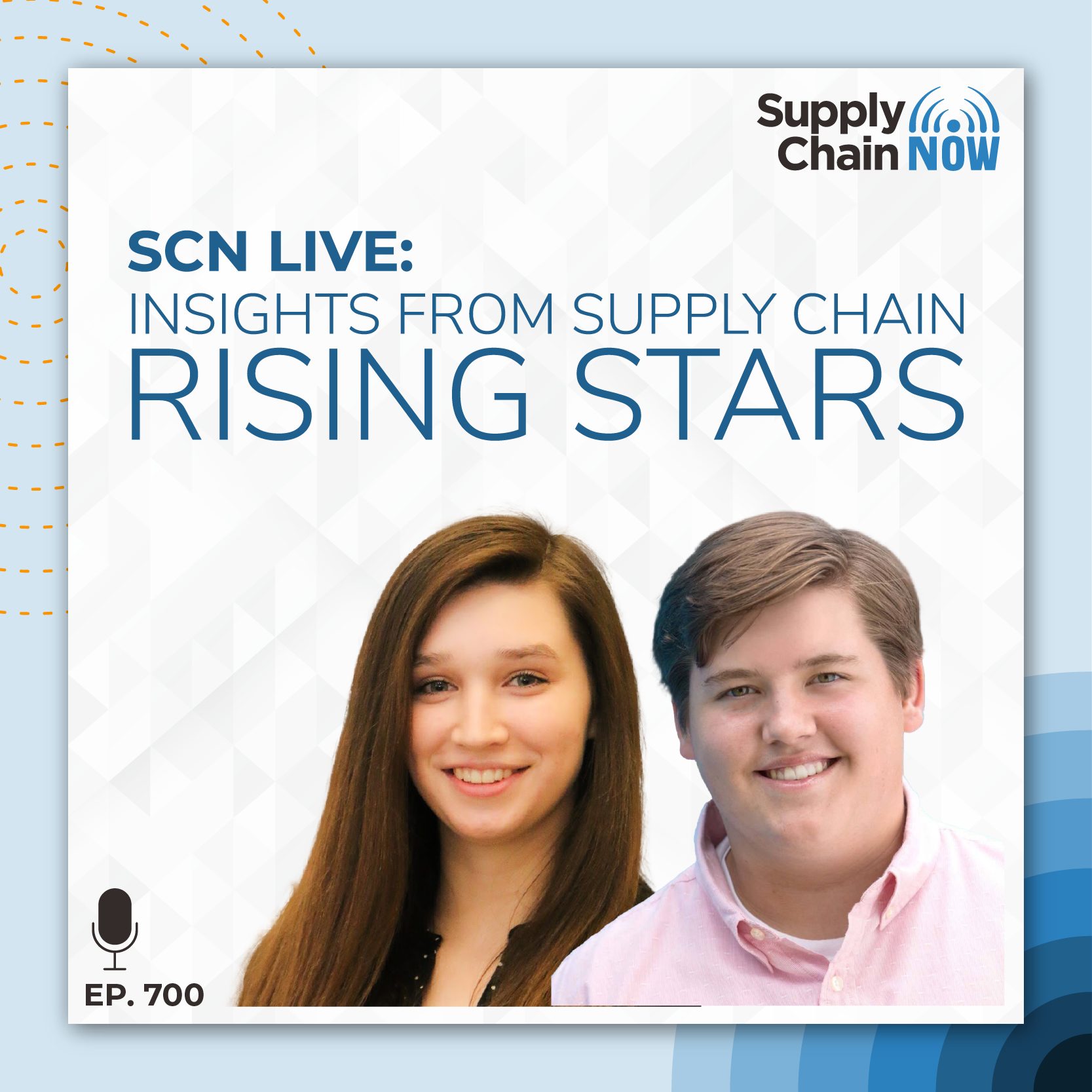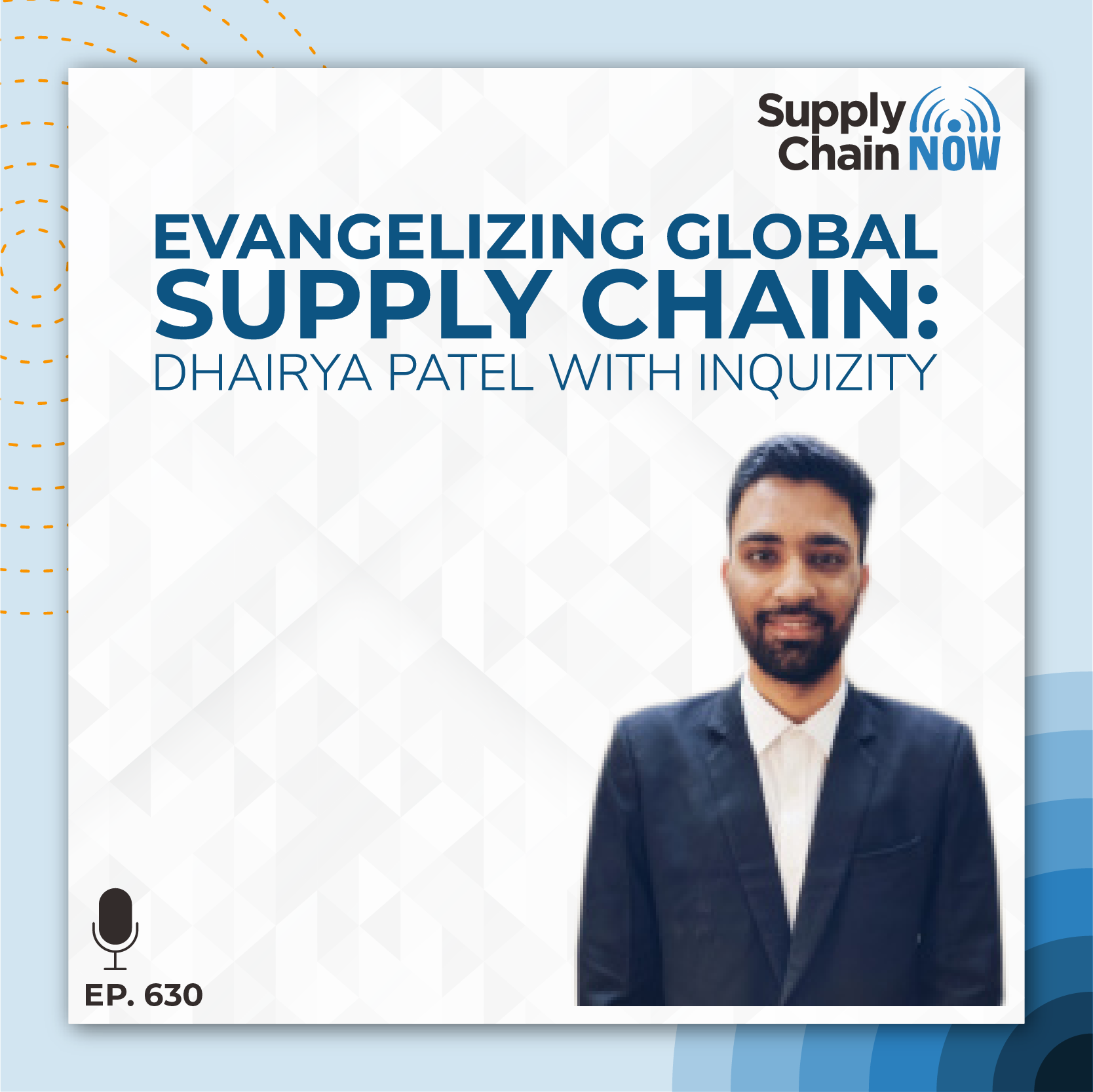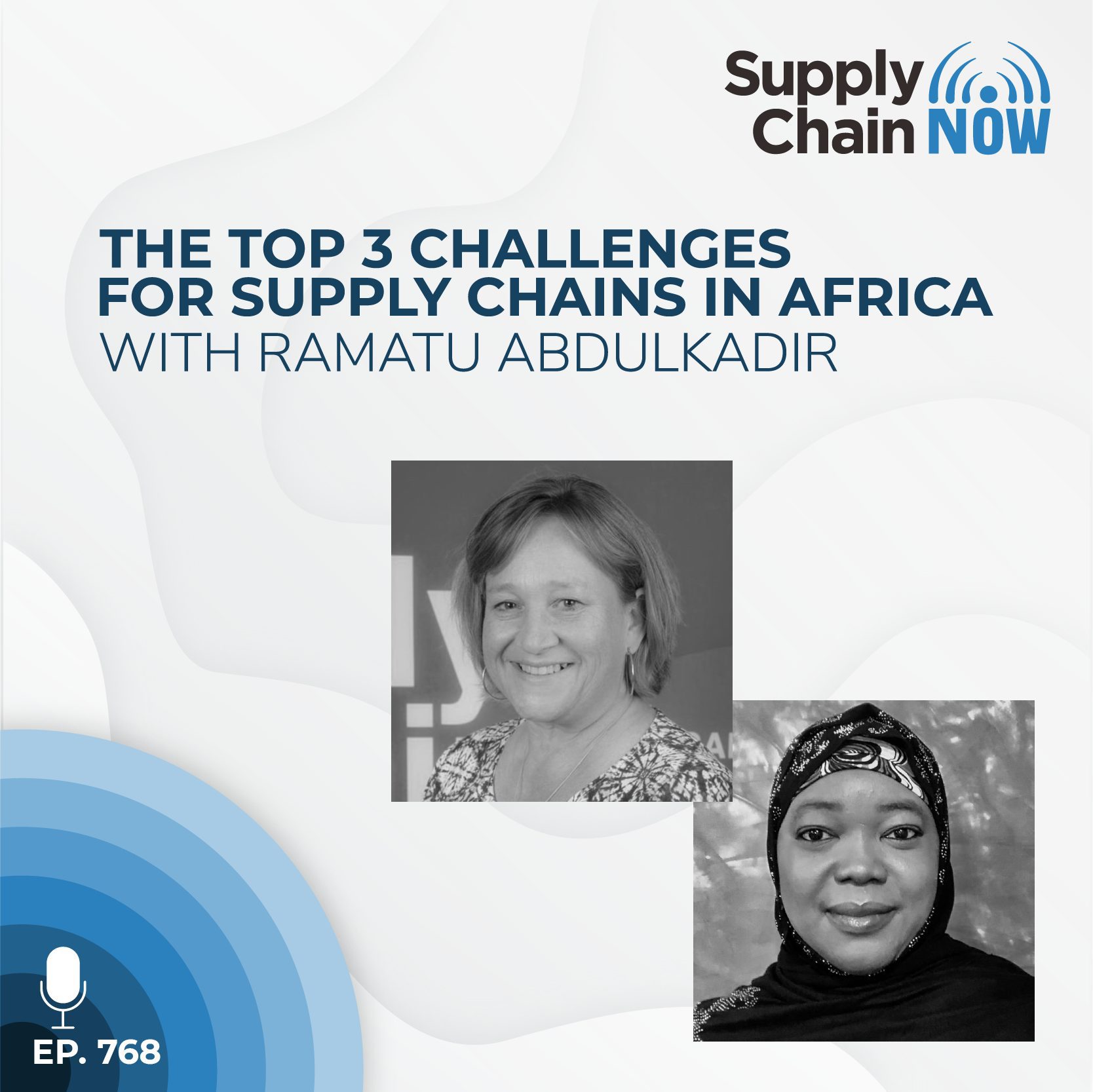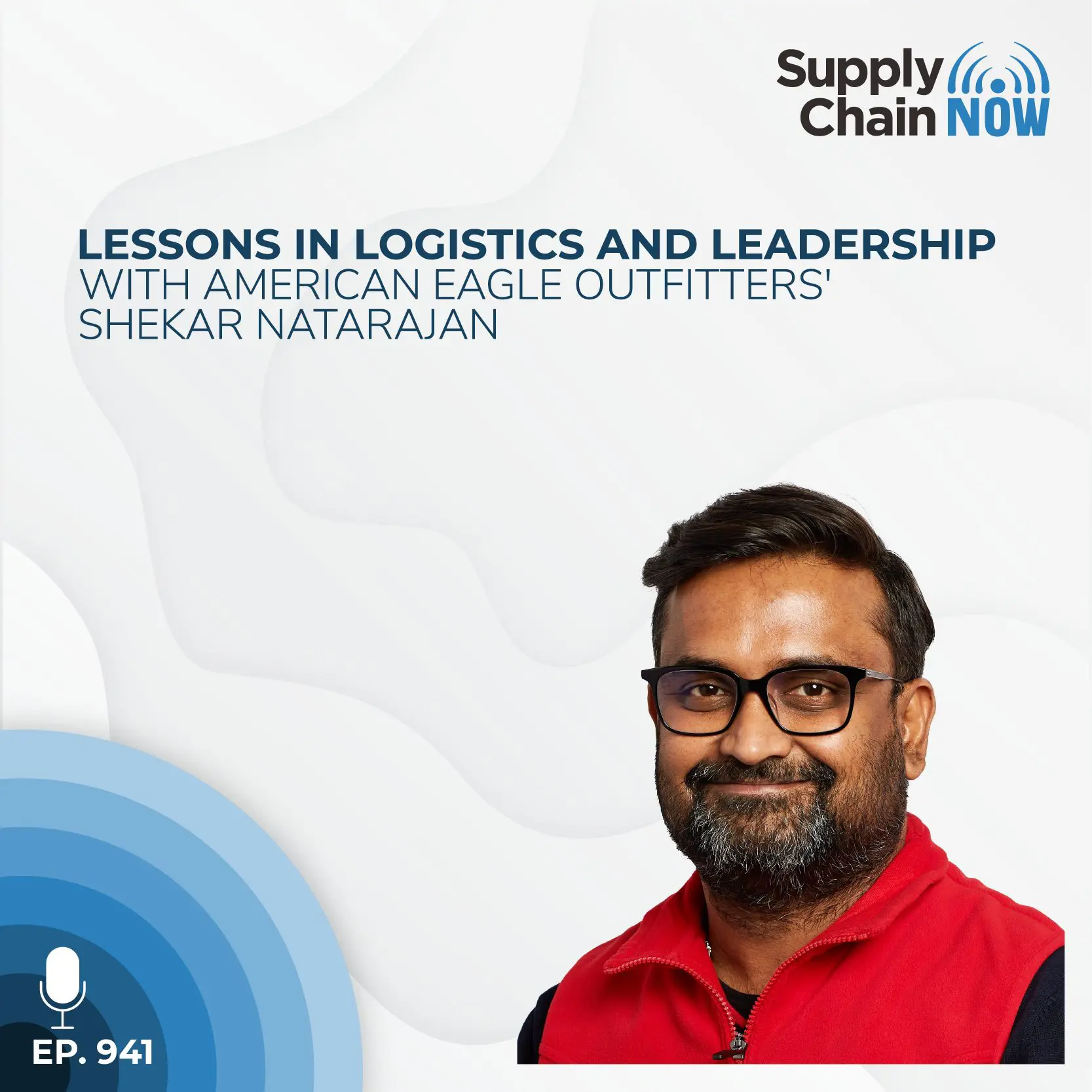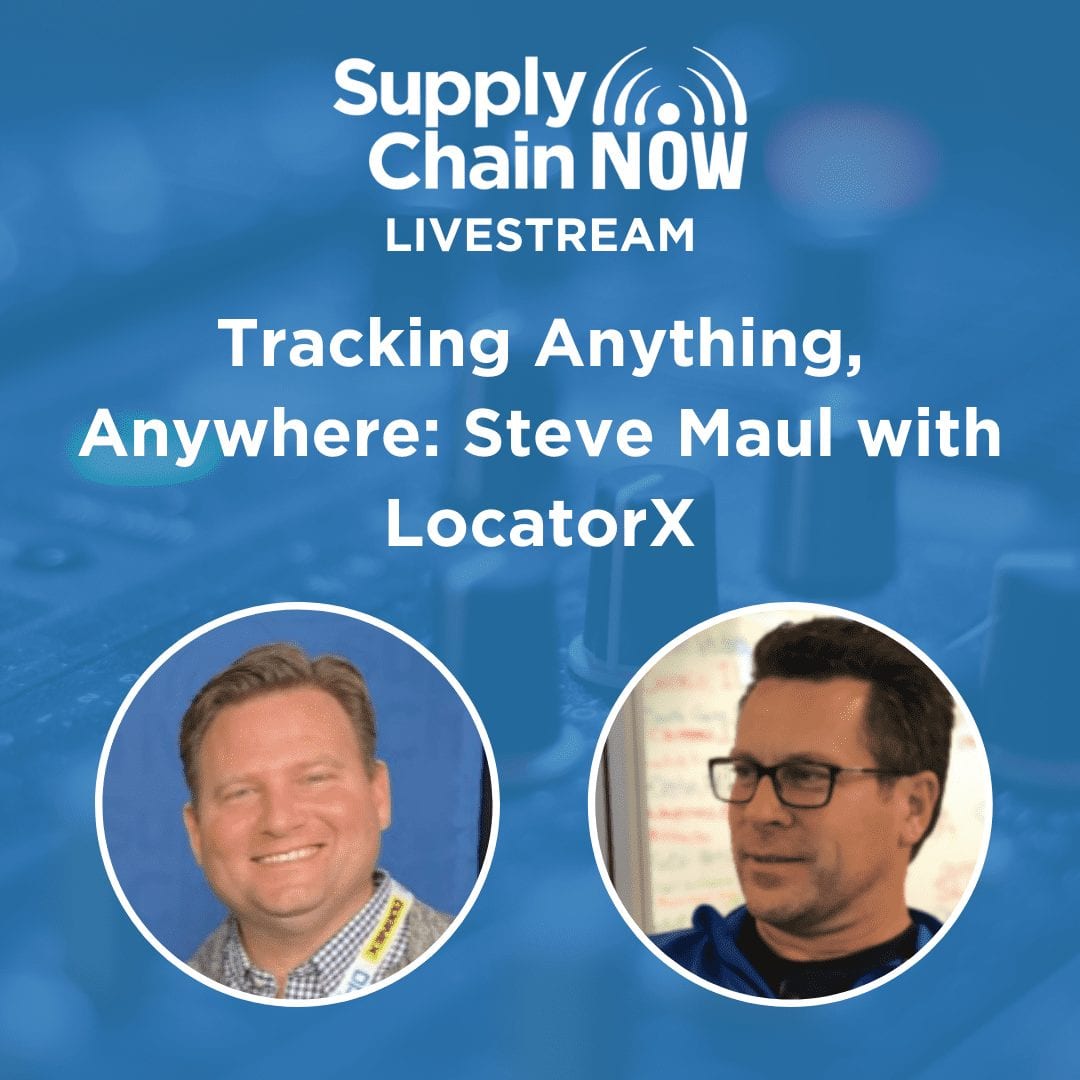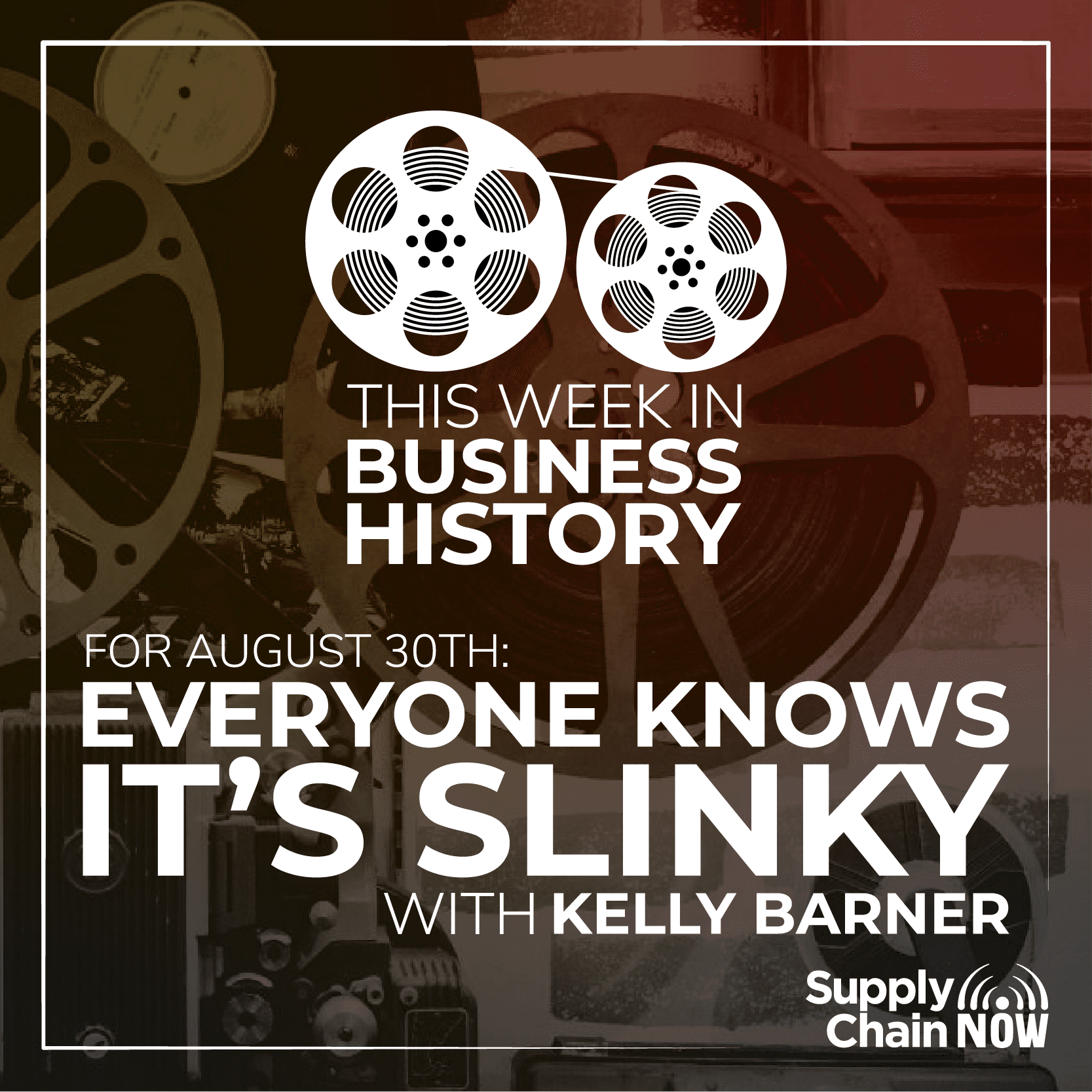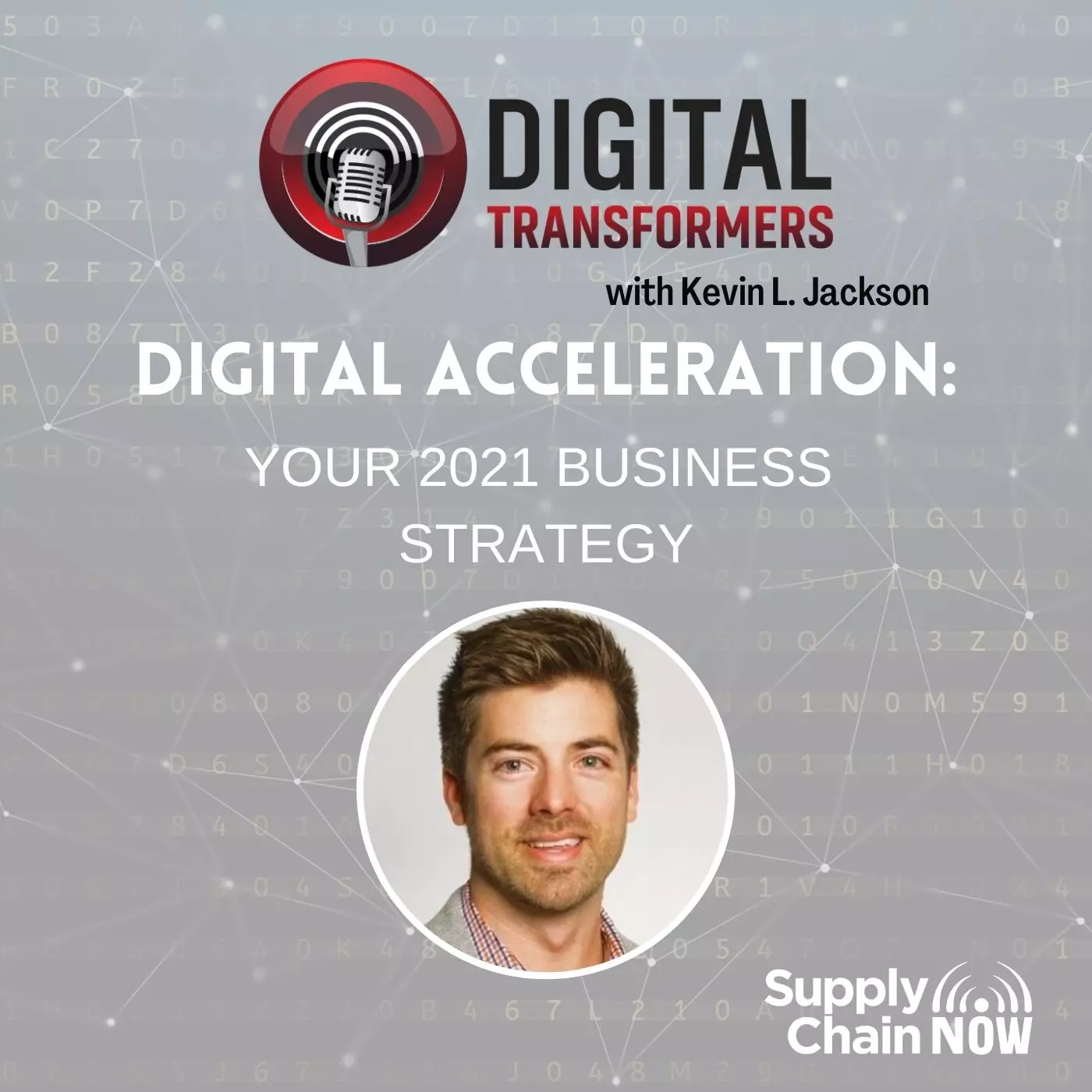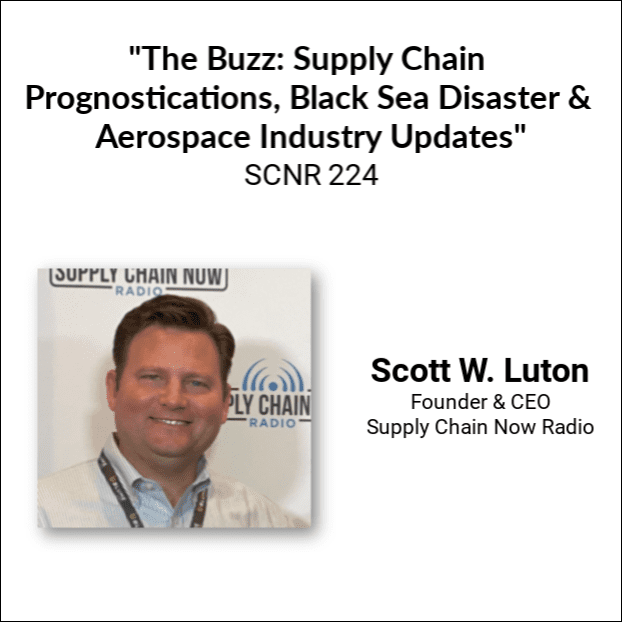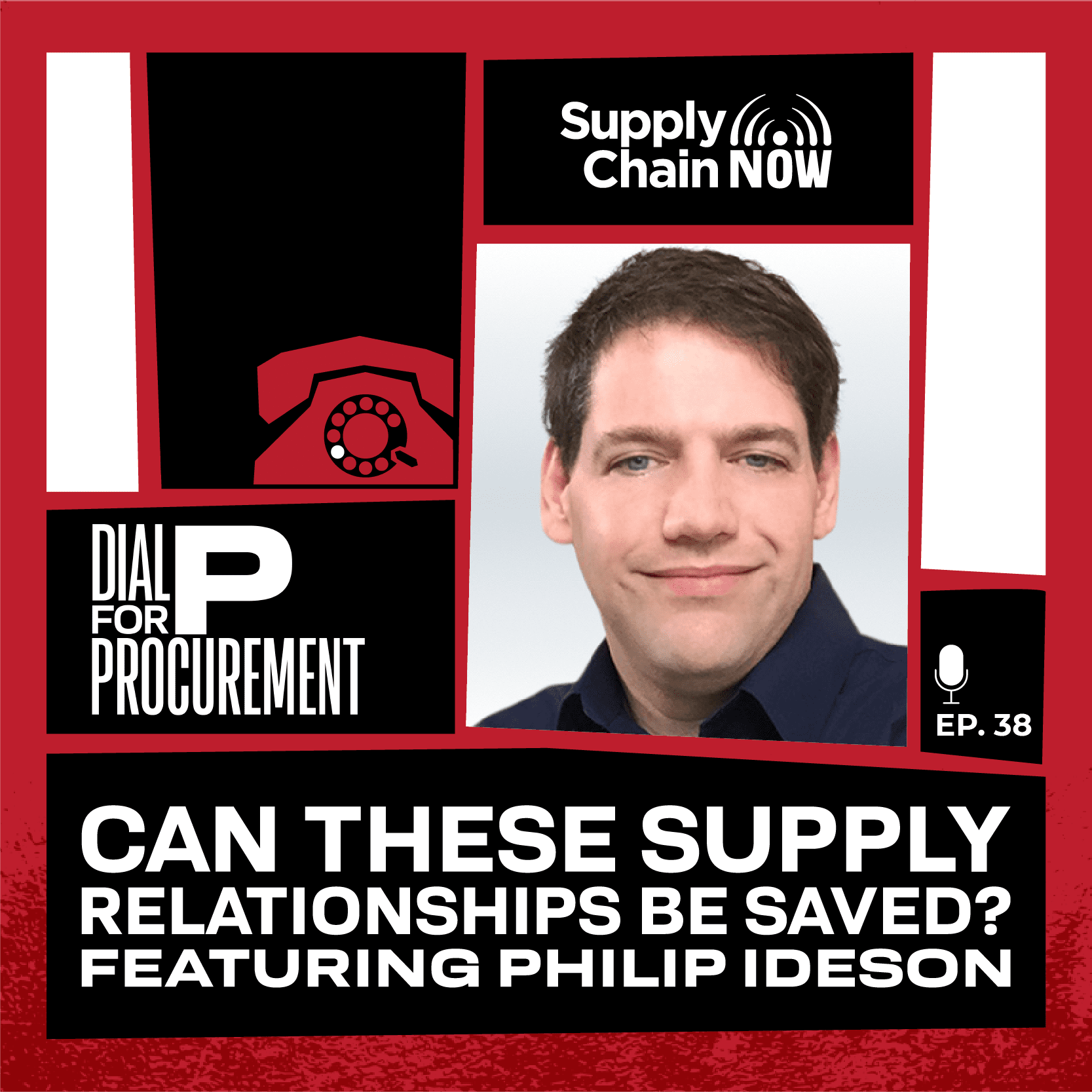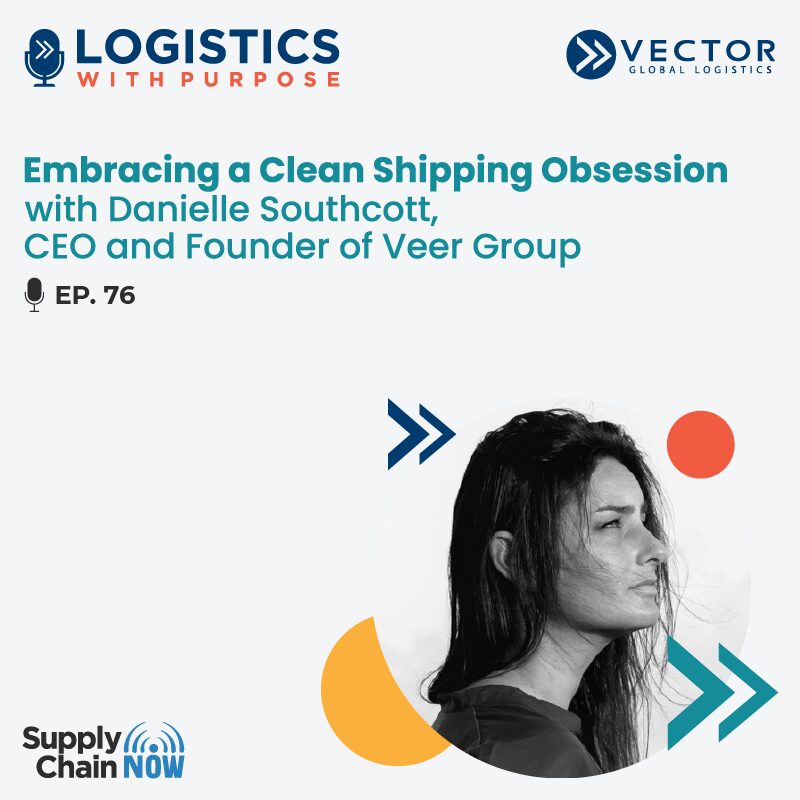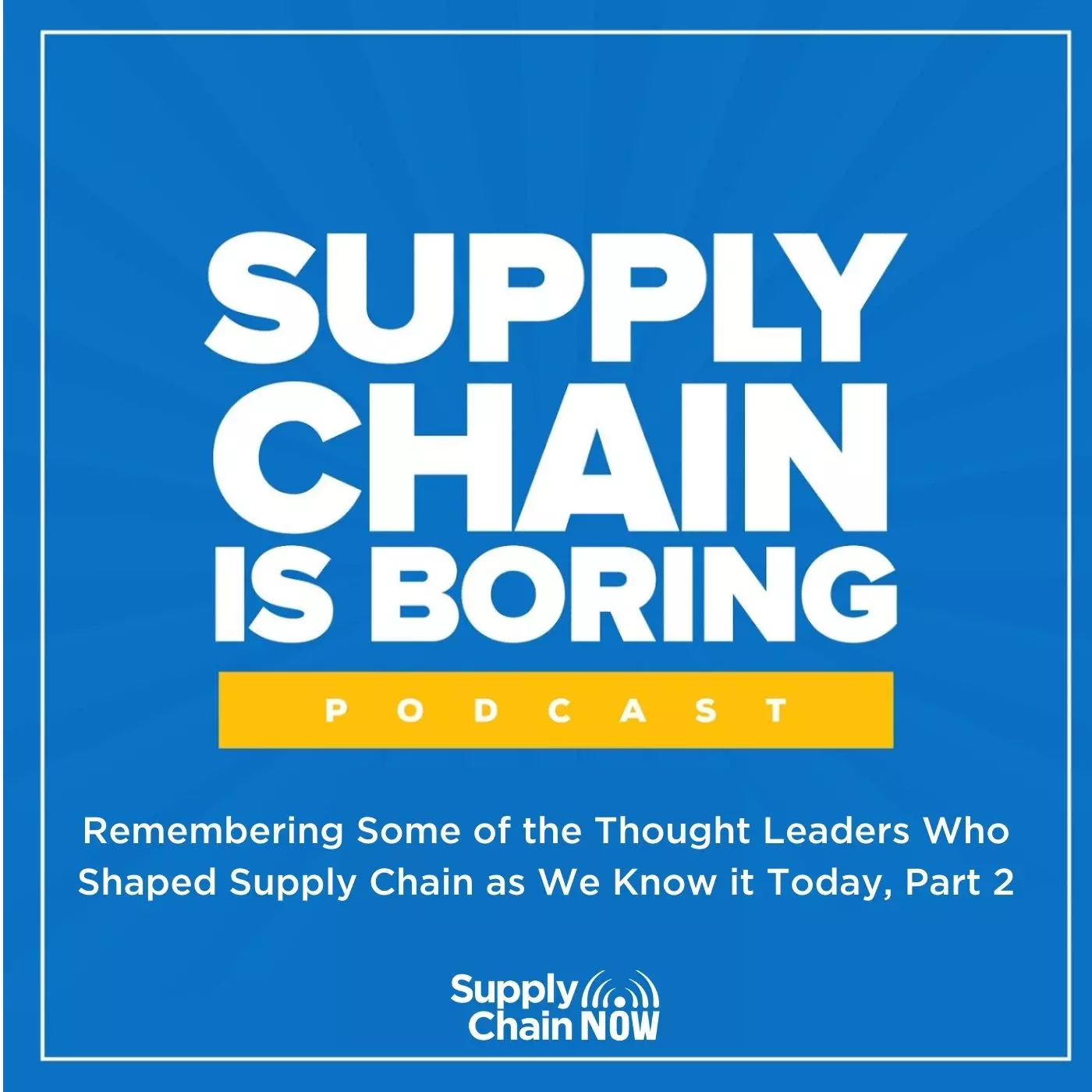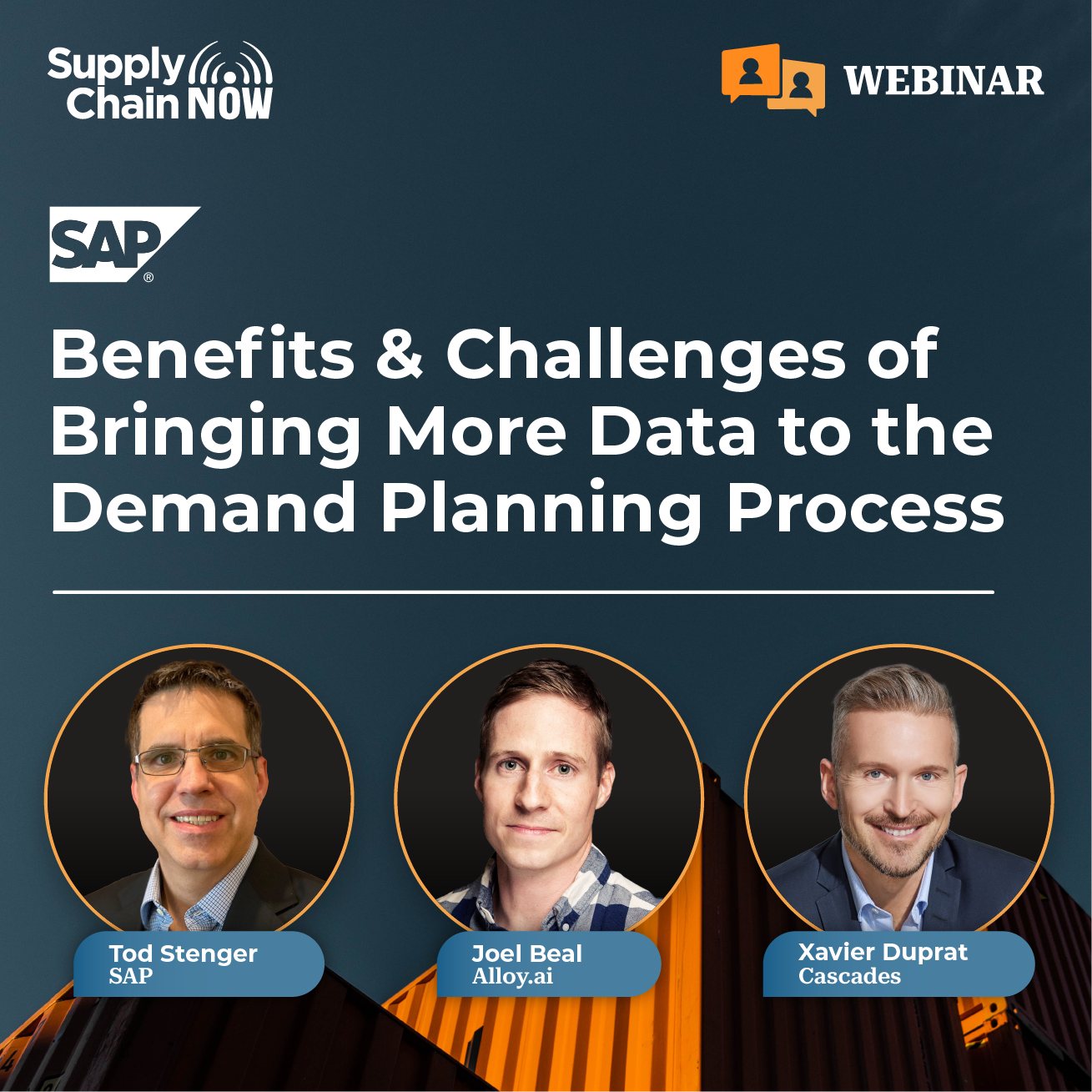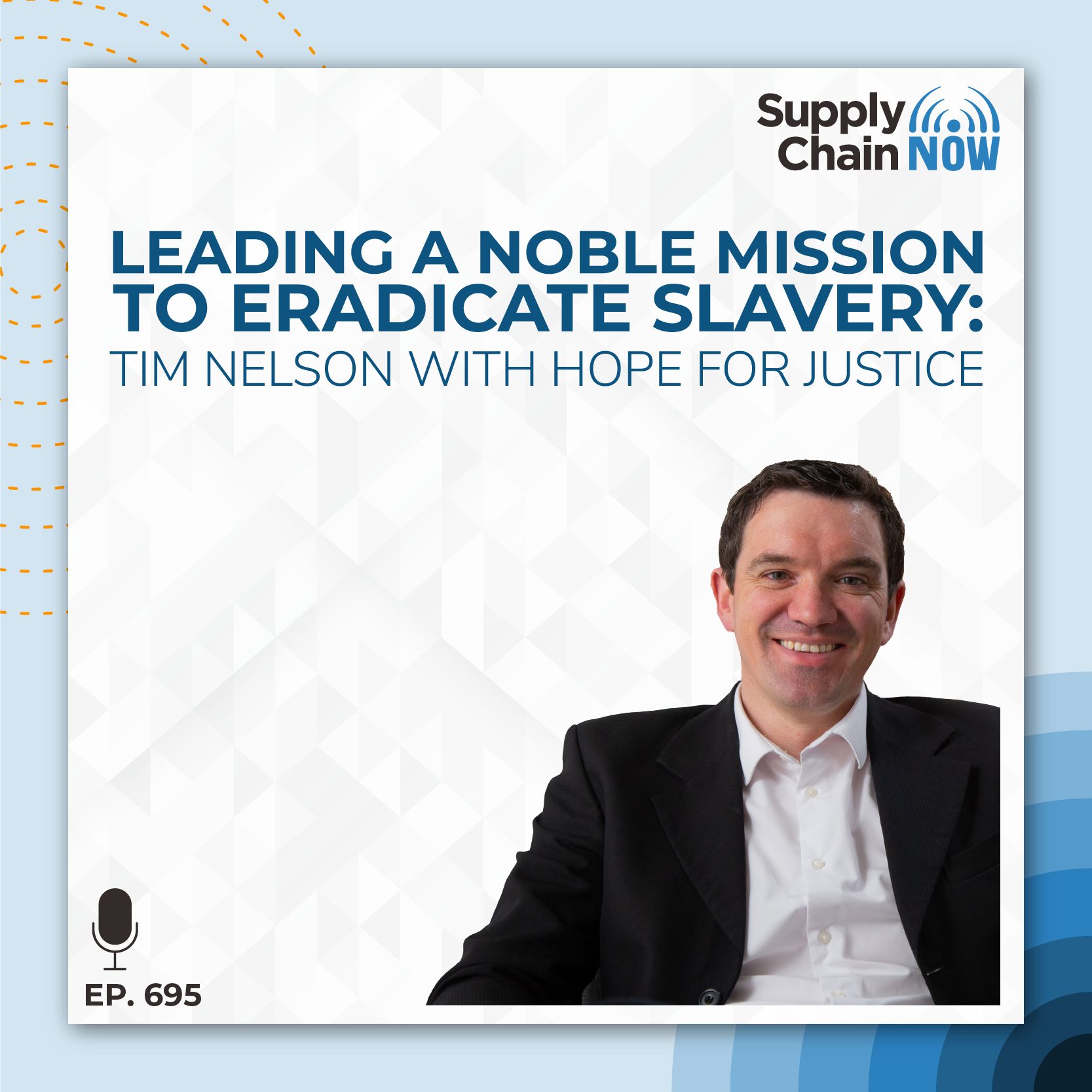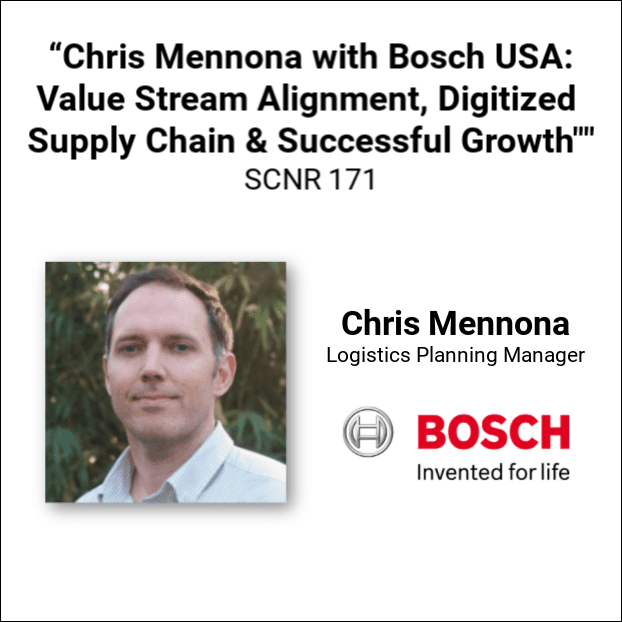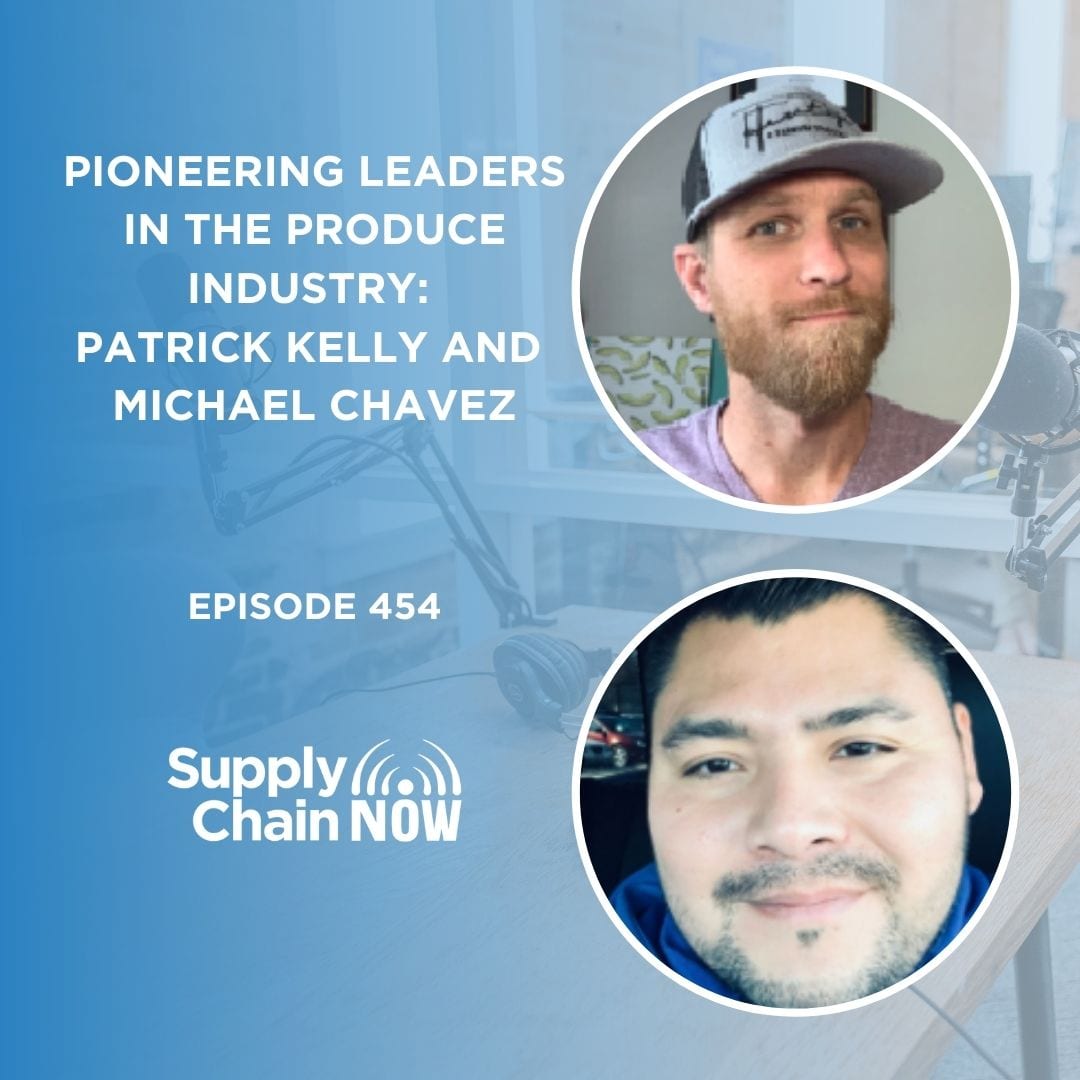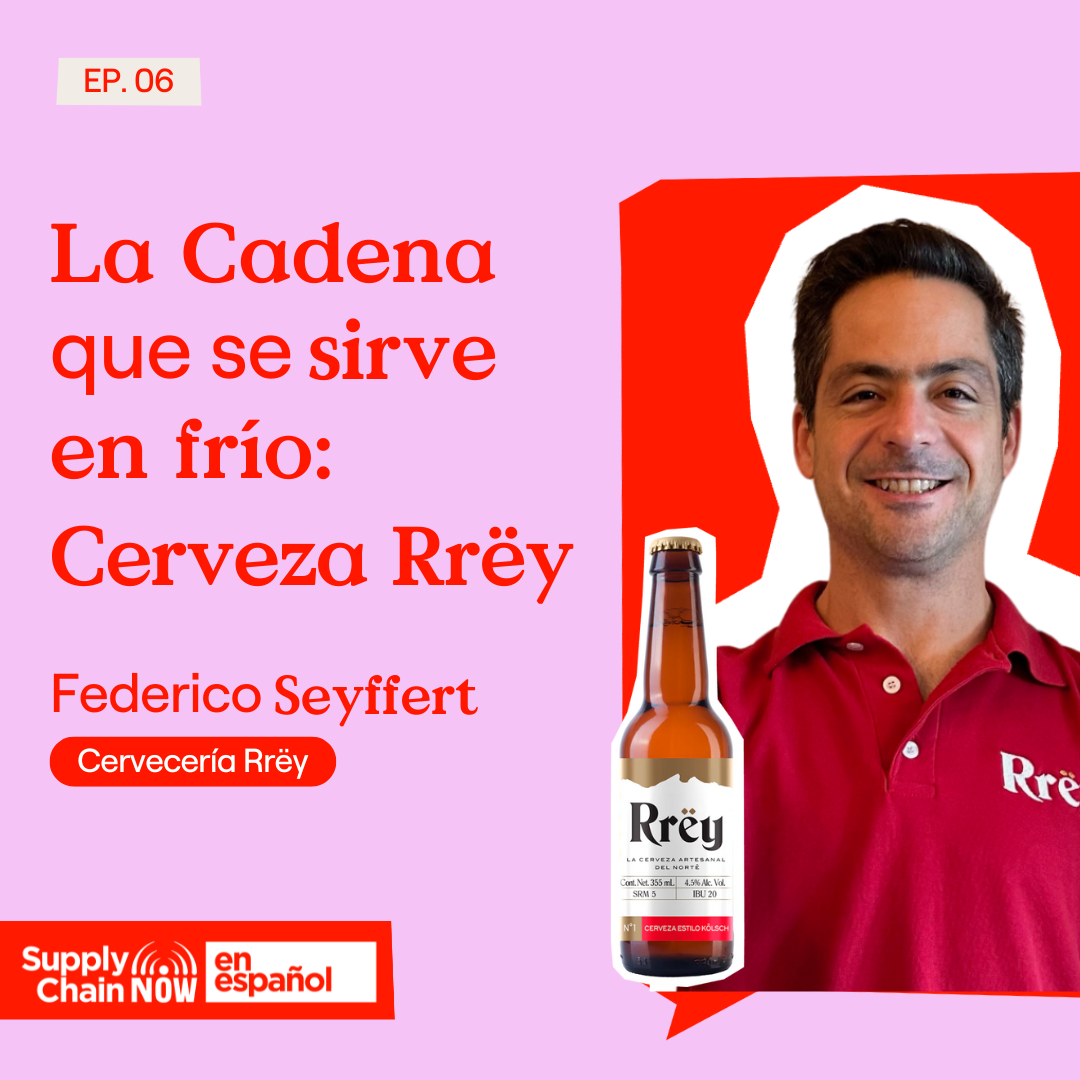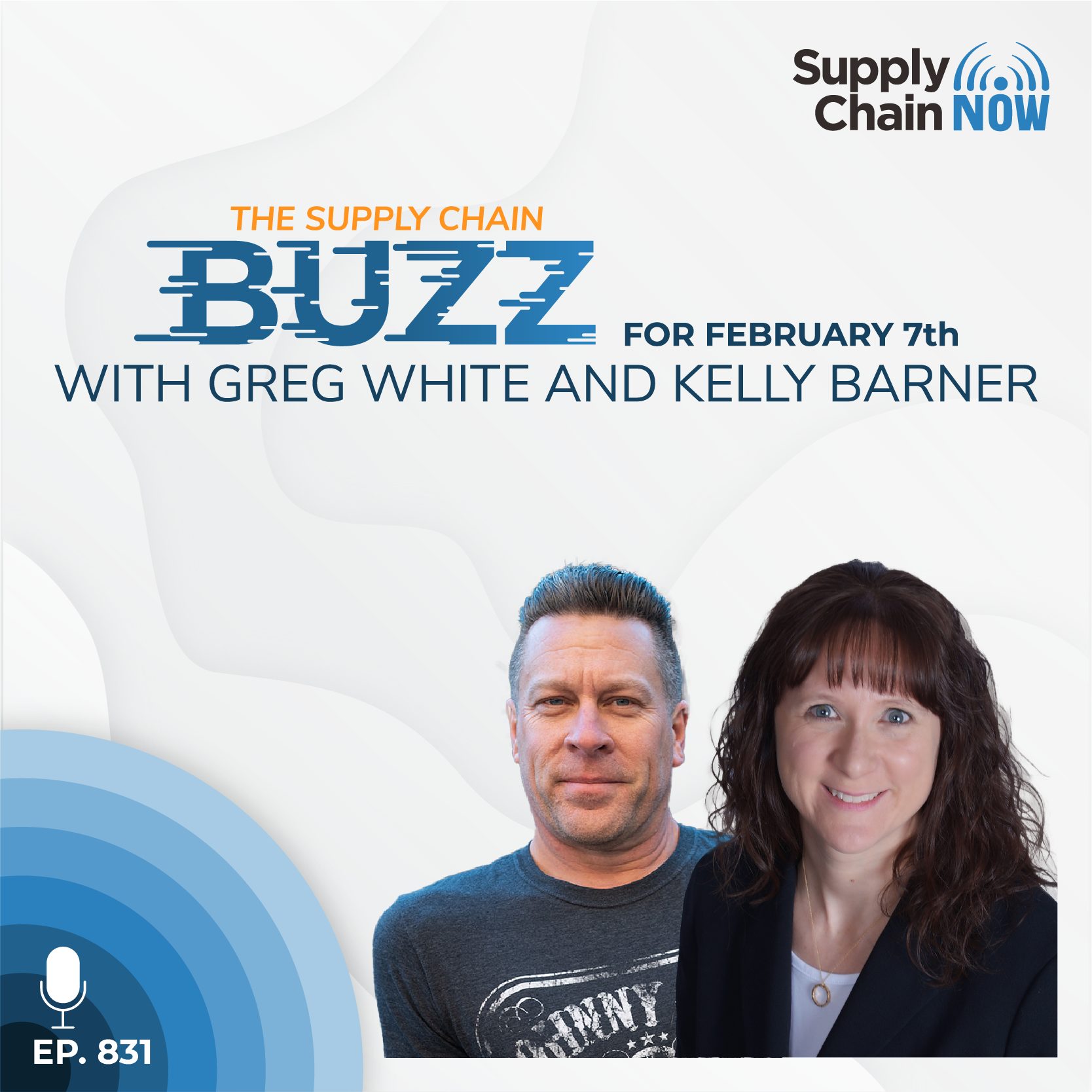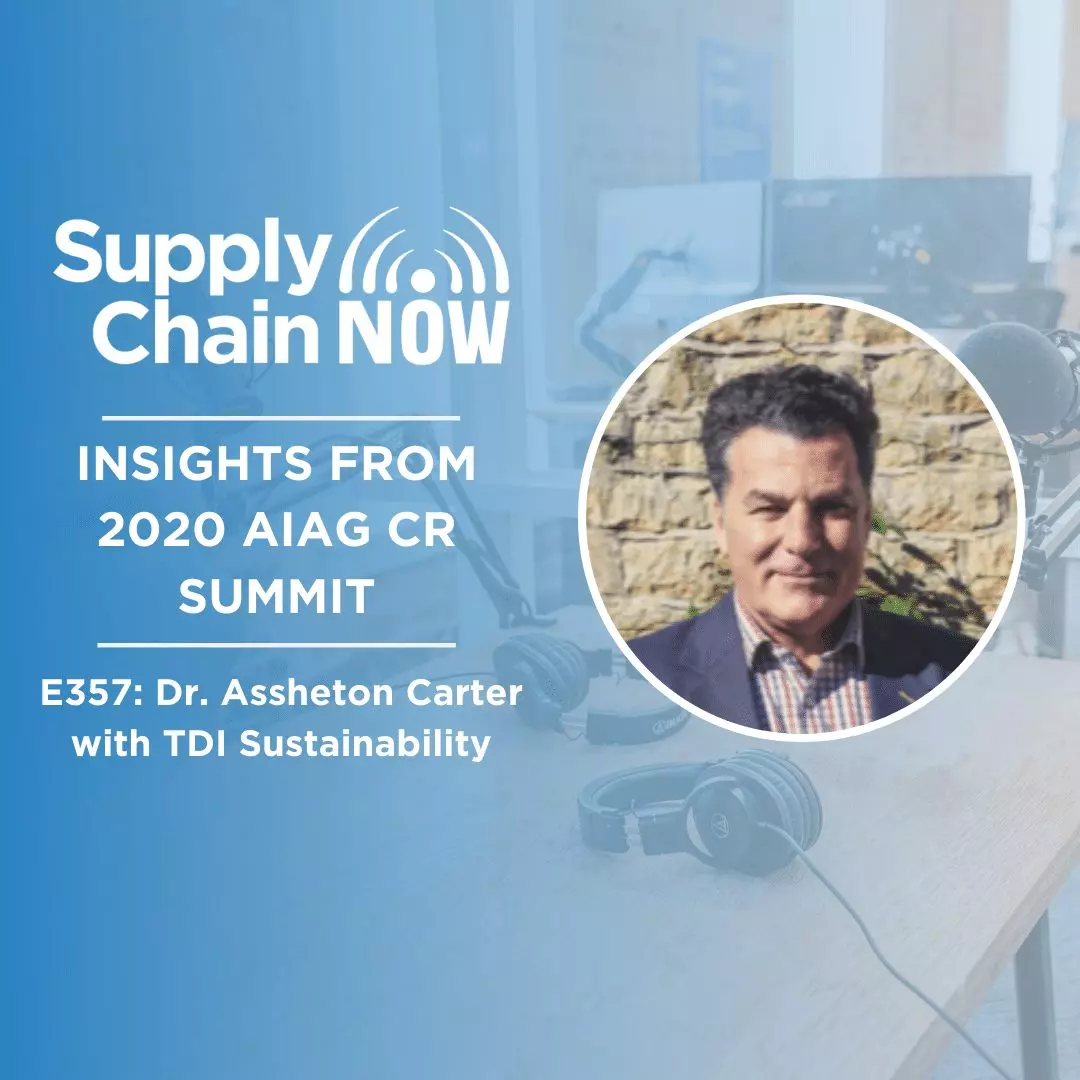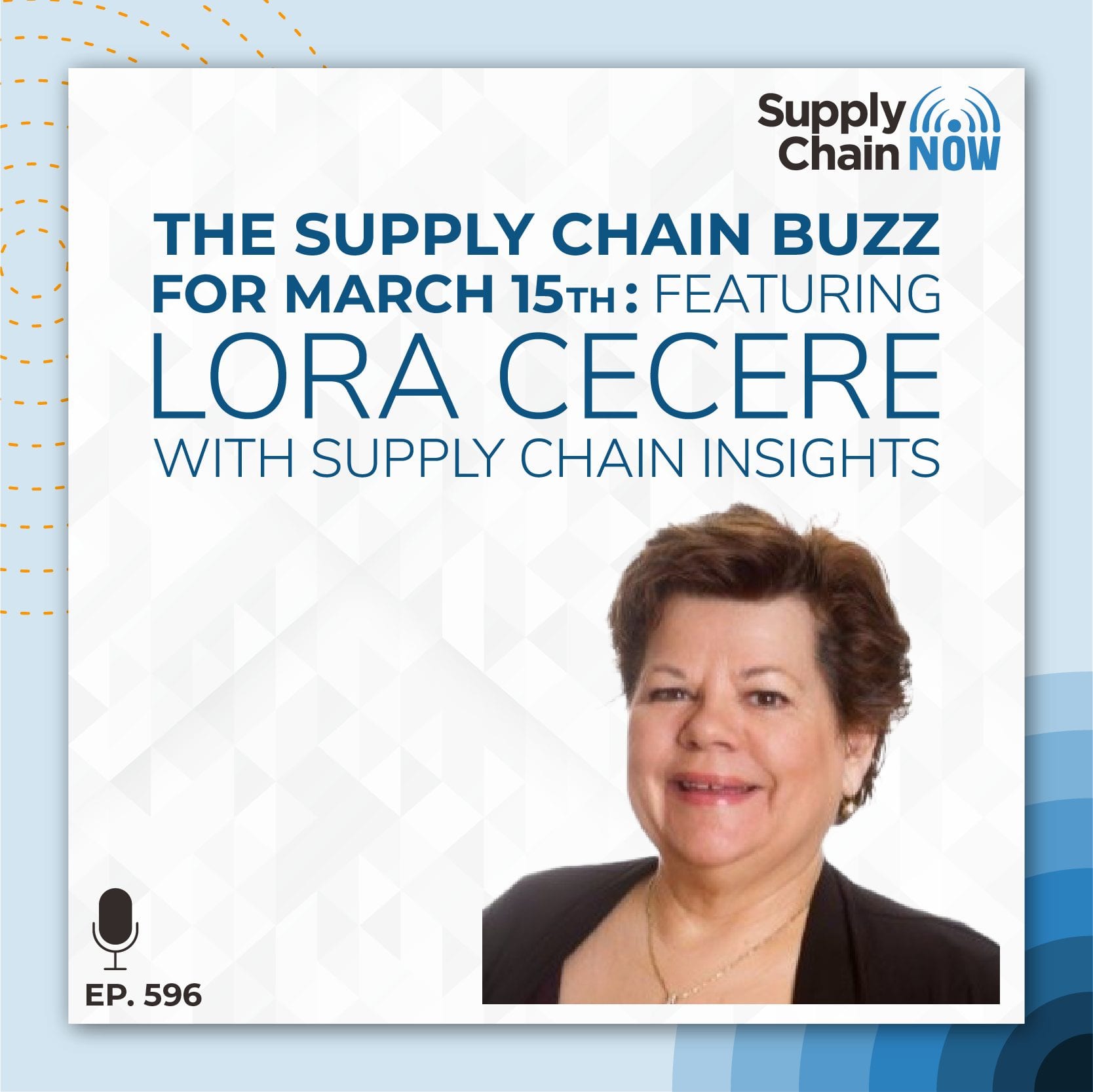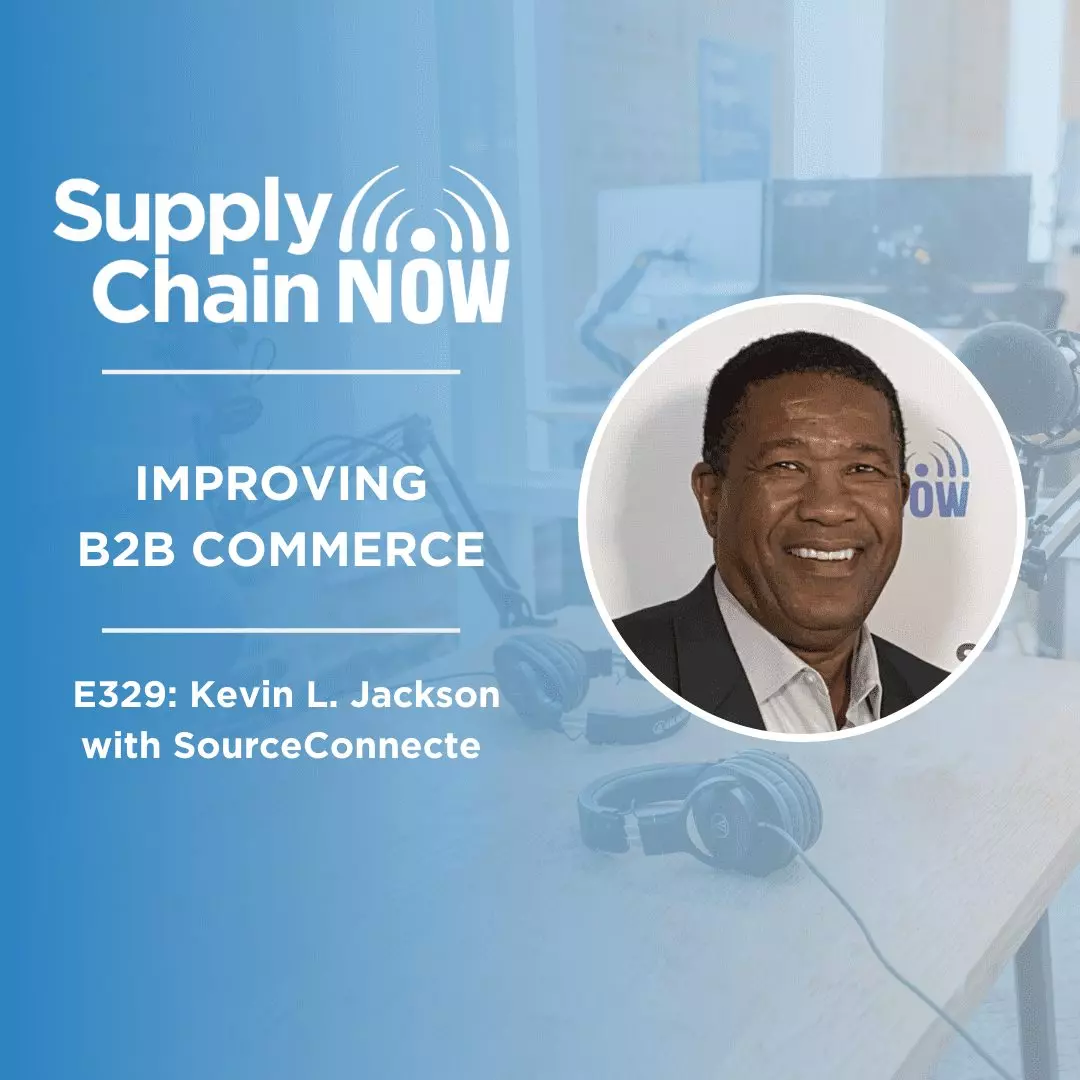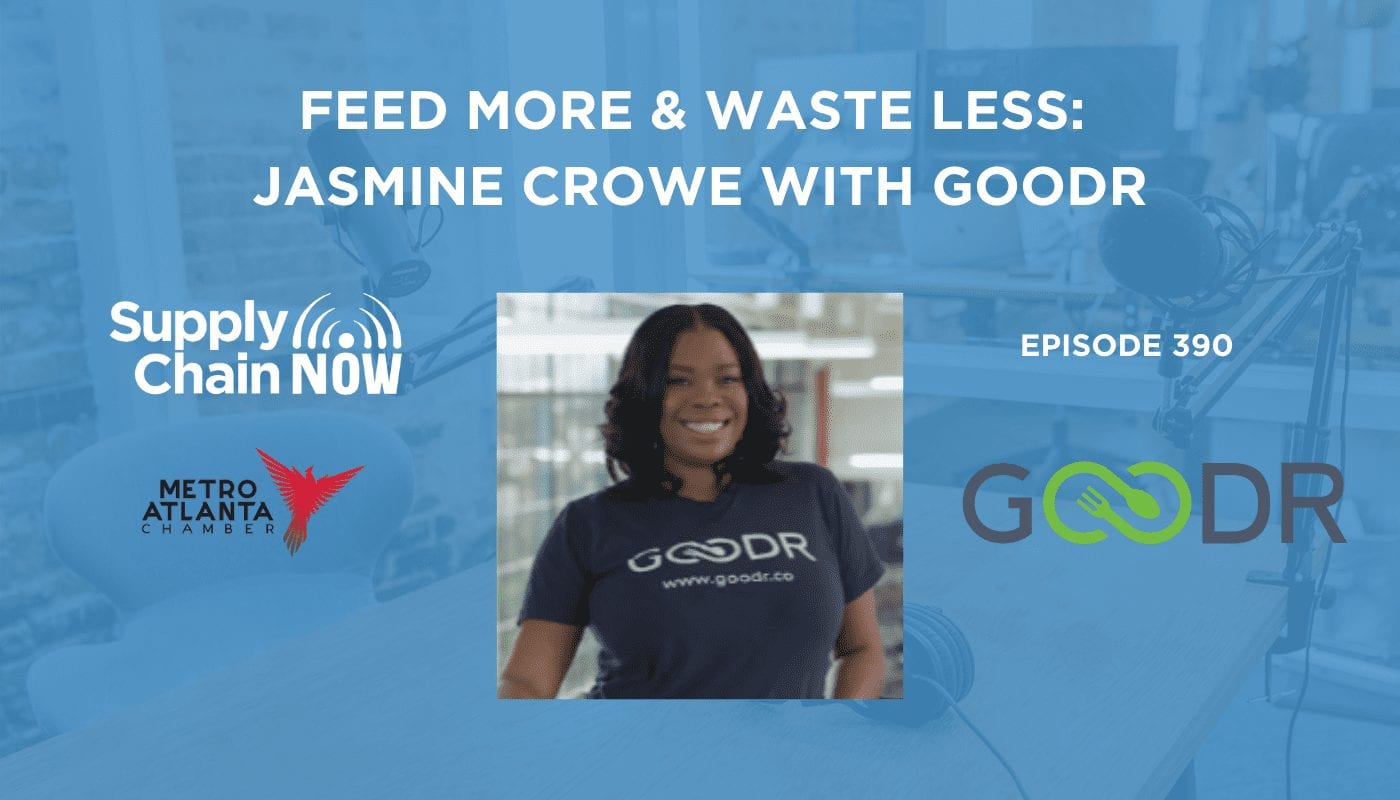
Episode Summary
“We believe hunger is not an issue of scarcity. It’s a matter of logistics.”
- Jasmine Crowe, Founder and CEO of Goodr
In 2013, Jasmine Crowe was cooking huge steam pans of food and transporting them to downtown Atlanta to feed the homeless and residents of senior homes, always being careful to feed people’s dignity at the same time as she fed their bodies. She did that every other week for four years.
Those years of service gave her the positive reinforcement and inspiration she needed to found Goodr. Goodr leverages corporate food that would otherwise be wasted and uses the supply chain to redirect it to the communities and people that need it most – all while maintaining established food safety principles.
In this conversation, Jasmine shares her amazing story of service through the supply chain with Supply Chain Now Co-hosts Scott Luton and Greg White about:
- The alarming statistics that capture how large, and how widespread, food insecurity still is today, and how it has been made worse by the COVID-19 pandemic.
- How familiar business management principles for transparency and measurement may be the key to alleviating hunger.
- The critical effort associated with helping corporations understand that donating eligible food can save their bottom line while supporting sustainability programs and feeding the community.
Episode Transcript
Intro – Amanda Luton (00:05):
It’s time for supply chain. Now broadcasting live from the supply chain capital of the country. Atlanta, Georgia heard around the world. Supply chain. Now spotlights the best in all things. Supply chain, the people, the technologies, the best practices and the critical issues of the day. And now here are your hosts.
Scott Luton (00:28):
Hey, good afternoon, everybody is Scott Luton with you here on supply chain. Now welcome back to today’s show joining me as my on one side is Greg white, who always is, uh, uh, an endearing and enduring cohost here on the show. Greg, how you doing? I’m doing great. I’m pretty excited about this show. I’m not giving her up yet. Please. Don’t write about this show. So this show continues our supply chain city series, where we focus on a lot of organizations that have roots right here in Metro Atlanta, but are making a really a global impact. And we’ve got an outstanding story here to share along those lines here today, as we look to increase your supply chain acute Now real quick before we do introduce our featured guests here today, let’s also welcome in Cynthia Curie director, smart cities ecosystem expansion with the Metro Atlanta chamber. Who’s also one of our co-hosts here on today’s show. Cynthia, how are you doing great. Thanks for having me. Well, we’re glad to have you. We’ve got a great story. Let’s go ahead and introduce our featured guests. Uh, Jasmine Crowe, founder and CEO at good or Jasmine. How are you doing?
Jasmine Crowe (01:31):
I’m doing great. Thanks so much for having me.
Scott Luton (01:34):
Well, your ears must have been burning, uh, from a lot of different places, but certainly here, uh, on the supply chain city series that we’ve been doing in conjunction with the Metro chamber, what a shining example of making things happen and, and, And really meeting a need, Uh, with real, tangible, uh, support and leadership and resources. So look forward to dominance. We’ve stolen your quote. We’ve said it a thousand times. So would it be okay if we asked you to say it so we can hear it from right from you?
Jasmine Crowe (02:05):
Absolutely. So again, are we believe that hunger is not an issue of scarcity? It’s a matter of logistics.
Scott Luton (02:11):
Mm. Love it so much better coming from her than us. We’re going to get the story behind that here momentarily. But before we do Jasmine, we’d love to learn more about you, you know, where you’re from and give us a story or two, no, from your upbringing.
Jasmine Crowe (02:28):
Yeah. I’m, I’m a military brat. So my father served in the air force for over 20 years. I was born in Texas and pretty much lived, I would say almost every military base throughout Texas. I grew up mostly in the Southwest. So, um, lived in Phoenix, Arizona, Albuquerque, New Mexico. And then when my dad retired, we moved to North Carolina, I, which was the first place I ever went to school for start to finish. So I went to high school with the same high school for four years, which was that my parents did, you know, specifically for me, I, to allow me to have some sense of a normal life at UL am. I ended up going to college in North Carolina. I went to Phoenix again to obtain my master’s degree. I lived in Phoenix for about six years and moved to Atlanta in 2013. And I’ve been here ever since and absolutely love it.
Jasmine Crowe (03:22):
Um, I would say, you know, I was a gymnast when I was a younger kid. Um, always have been very, um, I guess, attuned to what was going on in society and really always wanted to see how I could help. Um, and so from as young as I can remember, you know, young, 15, 16, I worked at a program called hands on Charlotte. Uh, when I thought I wanted to be a teacher and would put on just different events for kids and really was always involved in community. And so I think I am really right at home with what I’m doing at gooder. It brings me a lot of joy and I’m just really blessed and honored to be doing something that I love. Well, I bet you are serving as a teacher in a lot of different ways here with what you’re doing. And also bet it’s very helpful to have a background in gymnastics to navigate through 2020, Holy cow, quick question.
Jasmine Crowe (04:17):
2013, you came to Atlanta. What, what brought you in particular to Atlanta? I felt, you know, just my dreams of being an entrepreneur. I think I had read that for, especially for black entrepreneurs. Atlanta was the place to be. Um, my sister was attending Spelman college and my dad was for whatever reason, afraid that she was in Atlanta by herself. And so kinda convinced me, he’s like, you should go to Atlanta and, you know, be with your sister and it wasn’t, it didn’t take that much convincing, but yeah, I made it out here and just really started to try and go after some of these ambitions that I had loved that. And we’re going to hear more about the rest of the story here momentarily. All right, Cynthia, I know we’re going to dive more into the, on to Jasmine’s professional journey, right?
Cynthia Curry (05:00):
Absolutely. And, um, like I said before, I just love your work and what you’ve done for the community is just so amazing. And especially right now just so needed. So thank you from all of us to what everything you’re doing. So tell us a little bit about your professional journey after school and before you started gooder and kind of what helped shape your worldview and kind of what led you to, um, be inspired to, to start good or tell us a little bit about that journey.
Jasmine Crowe (05:27):
Yeah, I mean, I had started a company called BCG in 2011 and I was working largely with celebrities, kind of helping them define what I call their giving footprint, how are they going to leave something positive in the world? And so I was working with countless, you know, athletes, entertainers, and we would do things like Thanksgiving, you know, Turkey giveaways, and toy giveaways. I would say, you know, these, these families that we’re giving turkeys to in November hungry other times of the year, you know, there’s just not a, I’m only hungry at Thanksgiving, mrs. You know, please help me with a Turkey. These families really were experiencing great levels of food insecurity. And I think ultimately the clients that I was serving, they were athletes first. They were football players, basketball players, singers, actresses. And that was what they did. And, you know, they of course wanting to give back, I think they had the right intentions, but it just wasn’t what they were called to do.
Jasmine Crowe (06:28):
And so I just decided to start doing some initiatives on my own. Um, so I started actually feeding people and cooking all of this suit in my kitchen and going to Atlanta. Yeah. I mean, just thinking about it now. I mean, I haven’t done it in maybe about six months. I think I did one last year, last summer. I just to kind of, it wasn’t maybe like in October, I think it was the last time I did one I’m going to just cause it feels good. You know, it feels good to kind of still go out on the streets, still serve. But when I started this in 2013, I was doing it every other week consistently for almost four years.
Scott Luton (07:03):
If I can ask real quick the, when, when you did something like that, especially when you’re doing it. So often the logistics behind that. So you’d, you’d bake a lot or cook a lot of food in the kitchen. And then would you box it up and go out and find folks, were they homeless? Were they in shelters or where would that go?
Jasmine Crowe (07:19):
Mostly homeless, but also I would feed in senior home. So I started doing a lot of work feeding in senior homes, a lot of affordable living senior housing communities, but I would put everything in like large theme pans with lids. And then I had have the racks in the stern is to kind of keep everything warm and I would drive it downtown. I had acquired a few tables over the years and table class and we would set it up and then actually, you know, allow people to have a choice. We want it to box it up for them on site. And then I turned it into actual restaurant experience where they got to sit down and kind of order off the menu. And so that’s kind of how, I guess it all started.
Scott Luton (07:58):
I love where you wrapped up on that answer because there is a sense of dignity that, that everyone deserves a regardless of their state of need, regardless of their, their lack of food security as you put it in and for you to be able to offer that in addition to just the, the core supplies and what the need food itself, that’s just incredible. I mean, it’s so it’s in demand. It, it, it is something that’s not being done, especially to that degree, that level of consideration
Jasmine Crowe (08:27):
For how did you make that transition from cooking in your kitchen and taking that down and feeding the community to establishing gooder and, and, and making that your business? Well, you know, um, I think it was just a, it was a calling. If you will, a video from one of my pop-up restaurants actually went viral on Facebook and, you know, amongst the praise, people were saying, this is so amazing, which restaurants donate the food. And the reality was nobody, you know, I’m cooking the food, I’m couponing and price matching. I’m going down, I’m serving in my kitchen. And so when people were saying, who donated it, it was kind of like, wow, like I should maybe get the food donated. And that’s when I started looking into, um, you know, really looking into food wise and just kind of Googling what do restaurants do with their excess food at the end of the night? You know, what do they do with their extra food? And, you know, came across hundreds of articles and reports, and really just became quite upset to be honest, that so much food was going to waste when I was really like penny pinching to be, you know, three to 500 people every two weeks. And, and thinking that that was wrong. Cause I knew that too many people were going hungry for food to be going to waste.
Greg White (09:36):
Yeah. And that’s sort of the travesty behind the whole thing. And you’ve talked about some of those numbers before. So as we think about, or you tell us about what gooder is and, and how you tackle things, can you share with us some of those numbers because it’s shocking when you, when you hear them.
Jasmine Crowe (09:56):
Um, so numbers wise, you know, every year in this country, about 40 to 42 million, but it varies, um, experienced hunger. I think they share, you know, with what we’ve seen with Kobe, I would imagine that maybe that number looks like a hundred million at the end of the year, you know, who knows what, what 2020 is going to look like? It’s just crazy. I mean, I just read an article today that the next big crisis is evictions and that we see, you know, people who haven’t been able to pay their rent for the past few months. Um, and what happens in these situations is people always make these critical decisions and it’s often am I going to pay for my rent? Am I going to pay for food? And then people are choosing between the other and that puts, you know, children and seniors and just families and people always at risk.
Jasmine Crowe (10:41):
So you have on one hand, millions of people that are going hungry, this could look like one in six children, one in four seniors. And then at the same time, you have 72 billion pounds of perfectly good food that goes to waste. And so that’s really the paradigm that we’re trying to shift is, you know, why do we have perfectly good food going to waste when people are going hungry? And how can we combat that as it’s being done in other countries, either U S is definitely a little behind on what can happen. But yeah, I mean, I think that’s, those are the, the shocking numbers and it’s just, it’s devastating to see that that is happening in 2020.
Greg White (11:18):
So how do you get that food from restaurants and other facilities to the people in need? Tell us about, cause you know, using your quote, right? It’s a matter of logistics. The food is definitely there. So tell us how you’re making that connection happen.
Jasmine Crowe (11:33):
So, I mean, gooder has, I was really inspired by the emergence of the food delivery apps in 2000 and around 16 when I was really first starting to think about gooder. Um, and my idea was, Hey, if a business had the ability via an app to say, I have excess food and request to pickup just as someone like me, or you can say, Hey, I’m hungry in order food to be picked up and then we can get that food and then get it over to our network of nonprofits. And so essentially that’s what we built. Our app inventory is everything is that particular business cell. So very much like an Uber eats or a door dash, it has their menu within the platform. And they’re able to click on those items, tell us how many they have. And then our platform calculates the weight value, the tax value of those items.
Jasmine Crowe (12:20):
And then once they push requests to pickup, we leverage a network of logistics partners. In some cases, our own do gooders our drivers. Um, in other cases it could be Postmates, it could be roadie. Um, it could be, you know, an 18 Wheeler company element, an actual trucker, someone that owns their own truck. Um, we’d had that instance on several occasions where we went and cleared out warehouses. Uh, so we’ll go and get that food picked up and then we get it delivered to our network of nonprofits. And we typically try and keep the food in a close proximity to where it gets picked up. Uh, so that, that food, you know, travels, um, in a good time and food safety is always top of mind.
Greg White (12:58):
That is such an impressive effort. I think, you know, the ability to kind of reverse that back to make sure that what’s left over is used. You mentioned restaurants does, do you, are you connected also with groceries and convenience and other stores like that? Or is it predominantly restaurants right now?
Jasmine Crowe (13:17):
It’s predominantly large scale enterprises, so it could be corporations. Um, we’ve done like Google’s holiday party. We’ve worked with EOI SAP on many others. I, we Turner, well, formerly turn a Warner media group was one of our very first customers. Obviously the Atlanta airport convention centers is another one for us. We definitely have tried to work with grocery stores. I think, you know, we are, we’re a new kind of model. I think I, you know, food banks and, you know, like feeding America’s, they’ve been around since like the seventies. And so they have just kind of a stronghold if you will, on corporations, especially in the grocery chain. And so we haven’t had much success kind of breaking into the groceries. Um, but we’re trying to, and I think, you know, in some years they will see that this is, this needs to happen because it’s crazy for every commercial that you hear from your Kroger’s to your Walmarts that say, Oh, we’re, you know, we’re, we’re ending hunger and we’re donating more to food banks.
Jasmine Crowe (14:17):
And through our partnership with feeding America on the side, you know, good or we’ll receive hundreds of emails from employees that work at all of these same grocery stores that are like, Hey, I work at Publix. I work here and every night we’re throwing away food. So it’s, it’s kind of like really, where does this food going? A bank? Cause there’s not a lot of measurement in what’s taking place a lot more food is going to waste. And so we’re good or comes in is we have offer, we offer real transparency. And so, you know, I always tell businesses, you can’t manage what you don’t measure. And so there’s donating food sometimes and yeah, it sounds good. But if the true reality is you’re composting or you’re wasting a lot of food on a daily basis, that is a shame. And a lot of times it’s food that needs to be so by, I mean, I tell people to do this all the time, go to your local grocery store about usually around eight 45.
Jasmine Crowe (15:05):
So if the grocery store closes at 10, you go around eight 45 and they’re usually someone in the meat department and they’re putting all of this meat in a cart and you could go and you’re like, what’s going on? You’re like, Oh yeah, this has to be pulled in. That meat goes to waste. And why that makes me upset is a lot of times that meat says use or sell, buy freeze, or sell, buy. It has a freezer sell by date. And that freezer sell by date might be, you know, that day, but that food can get frozen. I mean, like my grandmother would freeze everything. I mean, my misleads suffer forever. So that is, you know, that’s really what we’re dealing with here.
Greg White (15:40):
I think one of the things that look, one of the critical components of your solution is that the economic viability of it, you, you coordinate also and you kind of went through that a very high level, but you coordinate also how these organizations can get a tax deduction by donating these products as well. Right? Because look, let’s face it. These are big corporations, as you said, they don’t know exactly what’s going on in the store. And it probably comes all the way down to the department manager store manager as to whether they comply even with corporate programs, but because the economic component, right, the recapture of dollars is there, that’s a strong motivation for companies to get involved. And I think it makes it easier for them to say yes, and that’s a significant portion of what you’re doing.
Jasmine Crowe (16:29):
A big part of what we’re trying to get to is that, you know, there is an opportunity for you to really save money by, by donating this food. And I think the other thing to, to understand, and one of the things I always try and point out to businesses is that the reality is they’re already paying to throw the food away. And I think that’s the thing that they’re kind of, you know, when you say that it’s like, Oh, you know, are we cheaper than like a waste management or Republic solid? Probably not. Right. So you can definitely throw everything in a dumpster. But the reality is you’re spending, you know, thousands, some of these businesses, hundreds of thousands of millions of dollars a year on waste. I talked to a franchisee a few weeks ago. I was telling him he was spending 50,000 a month. He has 26, 26 restaurants in one of the large airports and 80,000 a month on, you know, waste services. So good are coming in at a fraction of that. And then getting you money back in tax savings, it was, seemed like a no brainer, but it requires a lot more education.
Greg White (17:30):
So food safety is a big concern. And we’ve all learned from watching tiger King that once, once meat comes off the shelf, once it goes back to the shelf effectively, it has to be thrown away. I assume that’s, I can’t recall at some sort of FDA rag or, or something like that, but what, how do you, how do you reconcile that? Because I think if, if you, if you’re closing that gap as well, all excuses are lost in my opinion.
Jasmine Crowe (17:59):
Yeah. I would say, you know, that’s not always true. I think there’s, there are store policies that are in effect, but I’ve been not. I mean, I have literally done something to this, the sense of I’ve purchased something. And then maybe my sister was like, Oh, I just picked that up from the grocery store too. And then you go back into the store and right away, they put like this sticker on it and it has to be thrown away. Now, you know, COVID happening, businesses aren’t even accepting returns. So there there’s a lot of it is like store policy, but it’s not, it shouldn’t be that way. I think, with what you saw on tiger King, that is the reality of what happens at every Walmart across this country. You know, there’s, I mean, there was a video a few years ago that had went viral on someone, this guy, it was in Oklahoma, he was behind a Walmart and he was filming and there were like baskets and baskets and baskets of meat.
Jasmine Crowe (18:49):
They had went bad. And some of it is just, again, it’s that logistics. I mean, a freezer will go out. We got a call from a Kroger, maybe like a month or two ago where their freezer went out one time and then they called us and we were able to get there, like within a matter of minutes, but so much food went to waste. I mean, it was crazy because they were going to just throw it away because their power had went out. So have we not gotten there within those 30 minutes that we did everything in those freezers would have went to waste. And we were able to get that to, I want to say like 15 senior homes and I mean, they just got to come down and get food. And it was, it was a blessing to see it with my own eyes, how much food went to those families.
Jasmine Crowe (19:27):
So I think a lot of it is just a lot of it is missed. I remember when I was first reaching out and trying to get, um, you know, businesses involved, they would say, Oh, well, you know, we were sued one time and now we don’t donate anymore. And sometimes someone sued us and I would go and look up Lexus nexus and try and find the cases and I could never find them, you know? And, um, I think that it just would, it would be passed down. And I would say who, like, what, what, what was the outcome? Did you guys win, lose? And then there is the good Samaritan act that in virtue protects businesses for donating in good faith. Um, but I think what it will ultimately take is, you know, just more sadly like policy changes. I mean, in, in France and in Italy, for example, businesses are fine. So on the flip side, like they literally have to pay money if they don’t donate their excess groceries to nonprofits. So that is way different than in the U S where they don’t do it for fear of being sued in that country, you will be sued and essentially find up to $10,000 a day. So a lot of money for not donating your excess food. So I think that’s just really what it takes.
Greg White (20:34):
So do you think there are enough protections, like the good Samaritan act to close that gap? Or do you think there are other things that need to happen or other things you need to do or communicate? So these organizations to get
Scott Luton (20:48):
That to be more pervasive because it seems to make so much sense, doesn’t it? I mean, I know it does to you, I’m asking everybody else here, how could it not make sense? Right.
Jasmine Crowe (20:58):
Yeah. I think that there, there are a lot of gaps. I mean, and that’s, you know, that’s just sadly the reality of it. We do have to do a lot of education. Sometimes just us talking to a customer, we have to go through five or six different, the facilities team may want to do it. Then we gotta talk to legal. And then we got to talk to finance and we got to talk to so many different people, um, to get, get it through. So it does require a lot more, I think in policy, I think we’re, you know, we’re getting to the point where we got to have some kind of policy shift.
Scott Luton (21:26):
Sorry, Scott. I had so many questions. All right. So I’ve been itching to dive in here, Cynthia. No, no, no. Okay. No, it’s good stuff. This is, we’re all probably itching to get in here. And Cynthia, I want to get your take real quick. Well, Metro Atlanta is kind of a landscape here that helps provide background to drive some of these things, but Jasmine, the, you know, just hearing you describe what you’re doing and how it works and, and just the, the, the, the value that the immense value prop, I mean how targeted it is, how transparent it is, how next generation. Yeah. You mentioned some of the groups, good groups to be fair that are out there doing the good thing. And they have noble efforts, but there’s a ton of waste just like in supply chain, in the, for profit world, there’s groups doing good business, right.
Scott Luton (22:12):
But there’s a ton of waste. There’s always a better way [inaudible] to here. And what I love [inaudible] [inaudible] about your story is that you love doing it on your own. And then you sat down and said, there’s a better way that we can leverage more technology and, and turn things on its ear and make it be a force multiplier. Right. So many more people. And that’s what you’re doing. And that’s the beauty of it, of disruptive leaders and disruptive organizations that is good or sad. I mean, this is a fascinating story. I wish I knew about this way back when, when Greg was, was singing your praises.
Jasmine Crowe (22:48):
I mean, I think what you said, Scott makes a lot of sense. Um, and you know, anytime I speak out is, you know, I always love to call out that everybody that’s working on hunger or food waste, I mean, commendable efforts, there’s no doubt about it. I respect everybody that’s working on it, you know, but what I, I always want to stay is that people are still going hungry. And so there’s one thing to work on. It, there’s a matter of being to solve it and really where good or wants to stand. And we want to solve, you know, we would love to be able to say, Hey, we’re no longer in business because, you know, 20 years ago we saw hunger in this country. And now, you know, we just get to sit around and make sure that everybody’s ate what we’re trying to get to.
Jasmine Crowe (23:28):
You know, the difference between are we pacifying something? Are we really getting to this off? And if your company, you know, it doesn’t matter how many food donations you make. If you’re still wasting a lot of food, you’re really part of the problem. And I think that’s what we have to get to, um, seeing, you know, why does that, why do we walk into grocery stores and see all those rotisserie chickens they get made every day at the end of the night, they’re just go to waste. And I mean, that’s the stuff I wish I could show so many messages and emails. I’m, we’ve received tons of people because I think that we’ll hear a good story. They could have heard me speak somewhere. And they’ll say I was at Publix. And at the end of the, you know, they were clearing up a deli counter and I’m watching them throw away all this chicken. And I’m like screaming, like why don’t my God, this, you know, because that chicken could be know a hundred families and it’s good food. And that’s the thing. Some food is just, it’s too good to go to waste and yet still does. And so I think what, what America has to do is just be open to new solutions and not so closed off, just, you know, sometimes if it’s one company, that’ll try it, others will follow.
Scott Luton (24:34):
We gotta be honest that there’s a huge opportunity. And what we’re doing is not good enough. What we’ve been doing for years is not good enough. So, um, so much there, Jasmine. Okay. So Cynthia went away, it gets you to way back in here before we go back to Jasmine though, you’ve got a question or two for her Cynthia speak to if you would, how Metro Atlanta and how, and, and, and some of the specific dynamics here help fuel powerful ventures like gooder. I mean, w w w what’s your take here? What’s some of the secret sauce here in Metro Atlanta.
Cynthia Curry (25:03):
Yeah. First of all, excuse my dogs back Burton in the background, right. When I come up, but the land, the world that we’re living in now, I think there’s so many things about Atlanta that help really thrive, help entrepreneurs thrive. One of the main things. I mean, Jasmine mentioned it. It’s why she moved here is we have huge diversity and we’re such a diverse community. Um, so that’s a huge, huge strength. We have lots of talent and they’re all diverse across all kinds of different industries and strengths. And then our industries that make the city strong are diverse. So we’re not dependent on one specific vertical that’s really strong. And if that fails, you know, the, the, the city is really at, at risk. Um, we’ve got so many different verticals that are so strong in Atlanta. And so that diversity is also a huge strength.
Cynthia Curry (25:53):
Um, another one that I have, I really think is a huge strength of Atlanta. Again, Jasmine mentioned this as collaboration, Atlanta is we call it coopertition right. I mean, Atlanta is a collaborator and we collaborate on, you know, business issues, social issues, things that really matter. Um, and I think we see a lot of the civic community and the business community and the, um, you know, citizens really all collaborate together to solve problems and really do things. Sounds like, you know, you’ve got some collaborations that you mentioned that roadie does some of your deliveries. I mean, things like that, companies work a lot together in Atlanta. And I think that’s a really huge plus and one of our big strengths and from what I hear, it’s pretty rare. Um, not every city really has an environment like that. We actually just launched the, uh, Atlanta restore fund.
Cynthia Curry (26:46):
Um, that’s a product of collaboration with care source. We launched it Monday. Um, and that is a fun that’s going out to black business owners who’ve been affected by COVID-19. So we’re offering grants in the range of 5,000 to $10,000, um, to help them kind of get through these rough times, applications opened on Monday, they’ll close on the 22nd of June. So, and that wouldn’t be possible without the collaboration from care source. So I think collaboration and diversity are two of the really biggest strengths that Atlanta brings to the table. And that’s just the tip of the iceberg, at least from what we’ve seen. Hey, real quick, Jasmine, do you find it? And if Cynthia wants to ask about the globe more of a global kind of a broader question real quick, do you find, and so in the companies you’re working with,
Jasmine Crowe (27:30):
Yeah. Supply chain tech startup, the early stage companies,
Cynthia Curry (27:34):
Do you find them to be more open To partnering to a group that’s driving,
Jasmine Crowe (27:39):
No change doing the right thing, the CSR, yeah. They’re on a mission
Cynthia Curry (27:44):
To give back A more openness in that leadership.
Jasmine Crowe (27:48):
I will say, you know, via, um, coven, we’ve had a lot of family, a lot of that CSR kind of outreach, you know, beforehand. No, but you know, when we kind of made our pivot to say, Hey, listen, businesses are gonna close, but people still have got to eat. Let’s figure out how to get our keys, our logistics system, and what we’ve built to now get food to people. We did have a lot of the CSR teams from different corporates kind of reaching out and saying, how can I help? What can I do? So I will give them that as it related to like the food waste and you know, the hunger piece before coronavirus, no, we didn’t have any, I can honestly say that none of our customers today came from that corporate social responsibility arm,
Cynthia Curry (28:31):
Sharon, the acronym I’m bad about using the acronym, then not mentioning a few folks, our audience, whether that means, okay, so Cynthia, let’s go broader here with this next question. Yeah. I mean, we’ve seen such craziness happening in the supply chain and you alluded to a lot of it so much food waste, just as a result of, you know, logistics, not being able to get the food where, where you need it. So kind of looking at the global supply chain world and kind of what it looks like now and what you think it will look like moving forward. What, what are you tracking? What kind of trends and topics and issues do you think are important that you think we should keep kind of our pulse on and that we should address to maybe make more efficient or better?
Jasmine Crowe (29:13):
Well, obviously I gotta say that I’m tracking food shortages and you know, you see those stories that are like, Hey, beef and pork is going to be going up. And I see it, you know, I’m in the grocery stores, we’re, we’re really buying the families. So I see that, you know, we’re ground beat. He used to be like $3 a pound, maybe now a $7 a pound. And so why that is a big issue is because at the same time, prices are going up, people are struggling. And so now it’s going to be more expensive to make spaghetti for your family, that map. So I’m definitely looking at like supply chain shortages. I would talk to a lot of distributors. I was speaking to Hormel this morning. Who’s been a great partner, get her in the past. And they gave me a section to, right.
Jasmine Crowe (29:53):
We have so many supply chain issues with a lot of our skews. We can’t even get them out for customers. People who’ve been ordering from us for 20 years. We’re not able to even supply them with a lot of these different skews. And so that is something that I’m definitely tracking because that affects everybody. And it affects a lot of people in ways that they just want to understand, you know, the price of bacon has doubled, I guess, everything within the last four months. So just understanding what that looks like and what that could mean. If we go into, you know, a deeper recession for the things that a family used to always think, you know, think of everything that is an affordable meal that can be made with ground beef. And now the price of that has doubled. So, you know, your taco Tuesdays, your spaghetti’s, everything like that, that families can really kind of depend on is now going to cost more.
Jasmine Crowe (30:41):
And so that’s one of the things I’m really tracking and trying to figure out when these shortages will kind of cease on what’s going to happen and really, how can we be doing better? I tell you sure. You know, the safety of workers, obviously in a lot of these factories, but then also, you know, what does that look like for, for people you think technology can play into that? I mean, you’re such a prime example of using technology for, for good and, you know, using it to solve those kinds of problems. Yeah. Absolutely. Technology can do a lot of great things. I think, you know, when I’ve been from what I’ve been tracking, reading, a lot of the things with these factories that have to close is because how they, how their work conditions are. And they work so closely together, um, you know, you’re packing things and you’re kind of like on these assembly lines. So there could be a way that technology could, could affect that, but they met on the other hand. I’m also one of those people in the back is very clear in saying, I don’t want technology to take like abs from everybody. You know, there’s a lot of people who make their living are working in factories. And so, you know, you get, you take away a factory job and replace it with technology. Now you have more people that are going hungry. So I think that it’s a, you know, it’s cute for sure,
Scott Luton (31:50):
As we start to wrap up this segment and, and we’re going to have to bring you back, because this is such a bigger story than just the hour we were going through here. Jasmine, I didn’t have this on some of the, some of the territory we’re going to cover here with you, but this is such an outstanding case study in, in, in hammer meat nail, right? And action based leadership. I’d love to get, you know, from a leadership standpoint, from a, how you’ve been able to make this happen and get to this point, if you’re speaking to other business leaders or startup leaders or folks that are trying to solve a problem, and they haven’t begun to crack the code, what would be a thing or two that you’d share with these other folks that are, are struggling to get traction?
Jasmine Crowe (32:32):
Yeah. I mean, one thing I always say is, you know, keep it going, keep at it because it took me a long time to get traction. I mean, it took me over a year and a half almost just to even build the first version of the technology. You know, I was talking about it. I did a Ted talk on it. I mean, but that whole time I was still trying to raise the money, raised price capital essentially is how I had to get that, get the first money. And I didn’t have family. I didn’t have friends that would pitch in, I hadn’t failed Kickstarter. You know, everything was really against me, but I continued to go and I think, you know, attraction won’t come unless you continue to, to put, you know, feet on the pavement and you have to have traction in yourself. So that’s the biggest thing that I would say.
Jasmine Crowe (33:13):
And then I will see, also say, just look for the one kind of cheerleader, if you can’t, you know, if there’s one person within a company, learn everything, it is about that cheerleader, that kind of person, that you’re in roads so that you could really replicate that same cell if you will, with every cup corporation. So for me, if that’s a sustainability person, if that’s a facilities person, when you’re doing that customer discovery, why do you like good? Or why do you like this product? What is it that, that you enjoy about it? And that’s what you’re able to mean as your selling points, as you start to really try and gain traction with other customers. I think those are the things that you gotta find your friends. I mean, there’s not a ton of them, but the ones that you do find, learn as much as you can from them. And they’re going to really help you shape how you, you sell your business to others.
Greg White (33:59):
Well, put Greg, I don’t, I’m not sure. Maybe I’ll I was zoned out for a second. I don’t think we covered made sure our listeners knew how they could support. Good. All right. Yeah. I’ve got a yeah. On a couple of fronts. So I’m really curious, looking at this from a funding and finance standpoint, what do you think is a couple things? What do you think is the most important thing either you need to do or needs to happen in the marketplace that gets good or over the top? And secondly, also, as Scott was saying, how can everyday people become, do gooders by the way, I love that term or in some way, help your organization.
Jasmine Crowe (34:41):
Well, great questions. And thanks Scott and Greg, for that, I think, you know, the easy answer would be, you know, if policy made this, you know, the right thing to do that, that’s the easy answer. I think that to answer your question, Greg, on the, what needs to happen. But I think also, you know, people, even the everyday worker needs to make sure that they’re holding the companies that they work for accountable. You know, if you’re going into a cafeteria, when things, you know, get back to normal, what our new normal will be, or if you’re shopping at a grocery store, and if you say, Hey, I don’t like that. You guys waste food. If it becomes something that we, as everyday, people start to kind of, enamor on the people that we are supporting the grocery stores, the restaurants, then the restaurants, they don’t want to lose our business.
Jasmine Crowe (35:26):
They want to have us continue to shop there at the grocery store. So we’ve got to really voice up and say, Hey, my neighbors are going hungry. It’s fine for me to donate at the gross at bed register, right? How many have we all been asked to pitch in for some food at feeding organization or, or another? And a lot of times I just would encourage people to turn that back on to the grocery store and say, listen, are you guys, you know, donating your excess food instead of throwing it away because that’s the perfect way to solve hunger. Um, as opposed to just my food donate my donation to buy food. Cause you know, we’re, what’s the point of just buying and buying more food when perfectly good food is going to waste. So I think that’s the one thing that we can all do and kind of influenced decisions.
Jasmine Crowe (36:06):
Of course, policy is something. And then, you know, if people want to support good, or we still have a colored relief fund that we’re trying to raise funding to, to be family. So people can always support us. That link is always on our social media. We have a page it’s good or.co/ COVID-19, which really speaks to all of the relief work that we’re doing, not just in Atlanta, but we’ve also been to new Orleans. We’ve been to Los Angeles. We’ve been to West Palm beach and Miami, Florida. So we’re really trying to take our work to other cities and really just provide food to people. I sell anyone, keep your chin and support a family or sponsor a pickup for a small business that maybe is clothing that has excess food to give away, but maybe can’t afford to use our service. Someone could pay for pick up and we will pay our drivers to go and get that food picked up
Scott Luton (36:56):
No matter how much good you think you’re doing, you’re not doing good enough. Do good or
Jasmine Crowe (37:03):
Put that on a shirt.
Scott Luton (37:04):
Yeah. I want to send a tee shirt to Rodney McMillan at Kroger with that. How can folks connect with you Jasmine and also learn more about good or where would you send folks?
Jasmine Crowe (37:13):
Yeah, what’s in first, our website it’s good. Or G L O D r.co I so visit our website and then you can connect with me. I’m Jasmine Crowe on everything, Twitter, LinkedIn, Instagram, I’m in the we’re good, our color across social media as well.
Scott Luton (37:28):
What a, what a great story, uh, really appreciate your approach here, what you’re doing, not just action based leadership, but next generation. I mean, leveraging the technology and just finding a better way, relentlessly finding a better way. So thanks so much, Jasmine, um, really have enjoyed this session and all the best moving forward. Jasmine Crowe, founder and CEO at gooder.
Jasmine Crowe (37:48):
Thank you, Scott. Thank you, Greg. Thank you, sir.
Scott Luton (37:50):
Yeah. Thank you. Thanks Cynthia too. All right. And big, thanks to Greg white as always. And Cynthia Curry with Cynthia, of course, with the Metro Atlanta chamber, as part of, as our partners in this supply chain city series here on supply chain. Now, Hey, quick note, before we wrap up here today, check out our, we’ve got a special event coming up, uh, via supply chain Al July 15th, which is an a global webinar, which is focused on facilitating a tough discussion. You know, the state of race and industry, as we look to bring, uh, a great panel with insights and perspective, along with our global audience is going to share their insights and experiences. And you know, if we’re not talking about things, we’re certainly not addressing them. So we invite you to check that out. You can find that as well as a wide right of the resources@supplychainnow.com Hey, on of our entire team and our extended team with Cynthia and Ben Harris, the Metro Atlanta chamber on behalf of our outstanding guests here today, be sure to check out gooder G O O D R dot C O a and find out how you can plug in and help this effort.
Scott Luton (38:49):
BAFF our tire team. Scotland wishing you a wonderful week ahead. Hey, do good give forward and be the change that’s needed. And we’ll see you next time here on supply chain. Thanks for buddy. Do good or.
Featured Guests
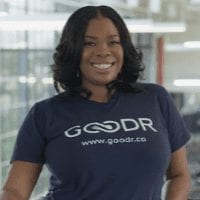
Jasmine Crowe is a docu-series producer and entrepreneur whose projects addressing hunger and poverty, and access to quality education have positively impacted vulnerable communities in more than 20 U.S. cities, the United Kingdom, and Haiti. Specifically, the Sunday Soul Homeless feeding initiative has successfully fed more than 50,000 and led to the founding of social technology enterprise Goodr in 2016. Under Jasmine’s leadership, Goodr has redirected more than 100,000 pounds of excess prepared foods — in addition to fresh fruits, vegetables, and other supplies — to communities in need since 2016. Jasmine holds a bachelor’s degree from North Carolina Central University and a master’s degree from Arizona State University.
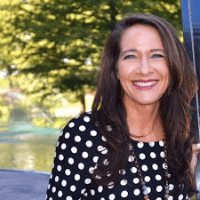
Cynthia Curry is the Director of Smart Cities Ecosystem Expansion with Metro Atlanta Chamber (MAC), Cynthia Curry helps strengthen and develop Smart City ecosystems across the 29 county Metro Atlanta area. As a member of the economic development team, she helps local companies grow while attracting new business and investment to the region by sharing metro Atlanta’s position as a technological powerhouse. By connecting Atlanta’s thought leaders in the smart cities space, she helps drive collaboration between the business, government, civic, and educational ecosystems to create equitable and resilient communities leveraging technology. Cynthia believes that the smartest cities center around its citizens and advocates leveraging technology to solve the most pressing issues of our time. Committed to upholding and evangelizing the United Nation’s Sustainable Development Goals, she cultivates technology solutions that help ensure equity, inclusion, and sustainability in growing communities. Cynthia holds a bachelor’s degree in Journalism and Philosophy from Georgia State University and has called Atlanta home for over 30 years. She serves on the City of Atlanta CIO Advisory Board and the boards of; Georgia Tech’s CDAIT (Center for the Development and Application of Internet of Things Technologies), TAG (Technology Association of Georgia), and the Atlanta Bicycle Coalition. Cynthia is a mom, wife, cyclist (road & MTB), runner, hiker, music lover, and food fanatic.
